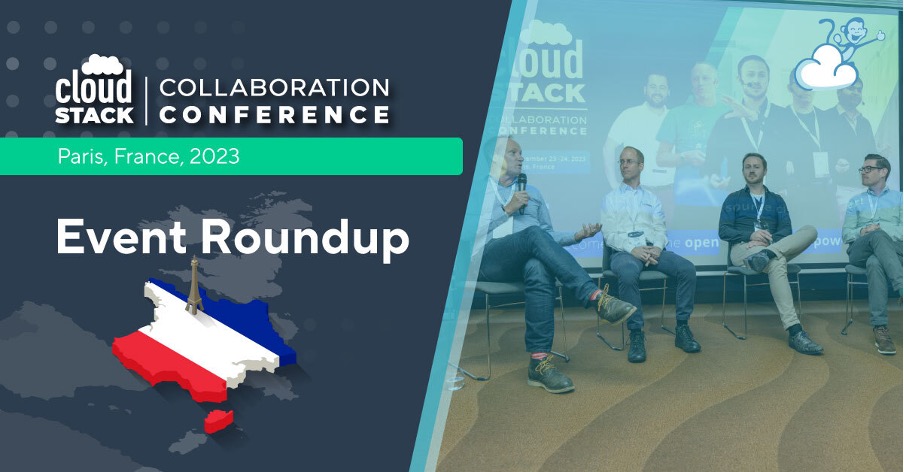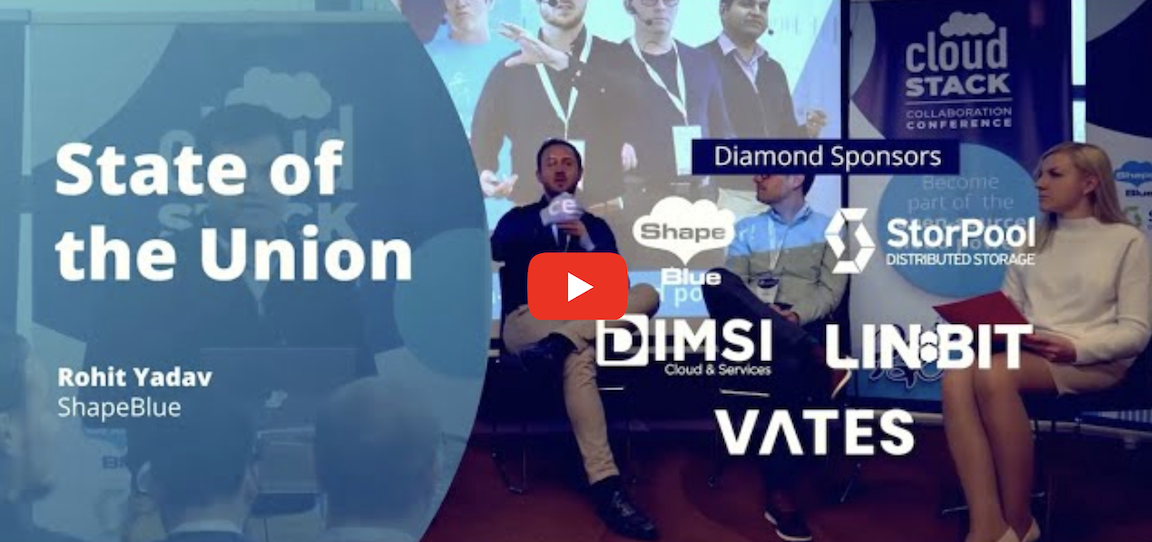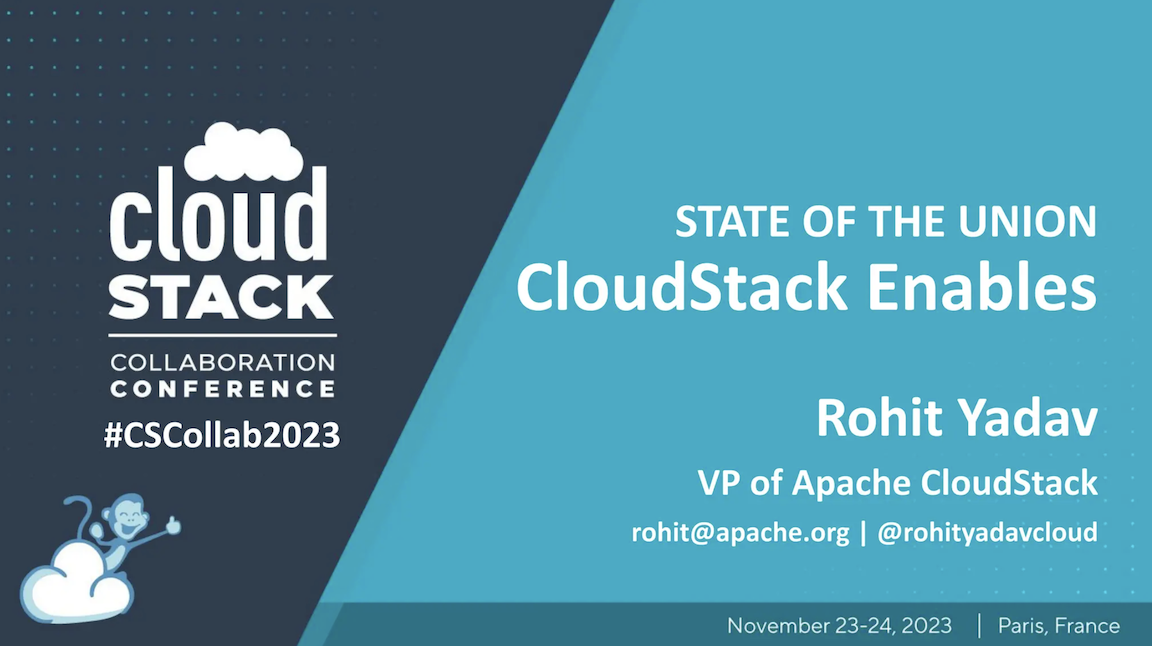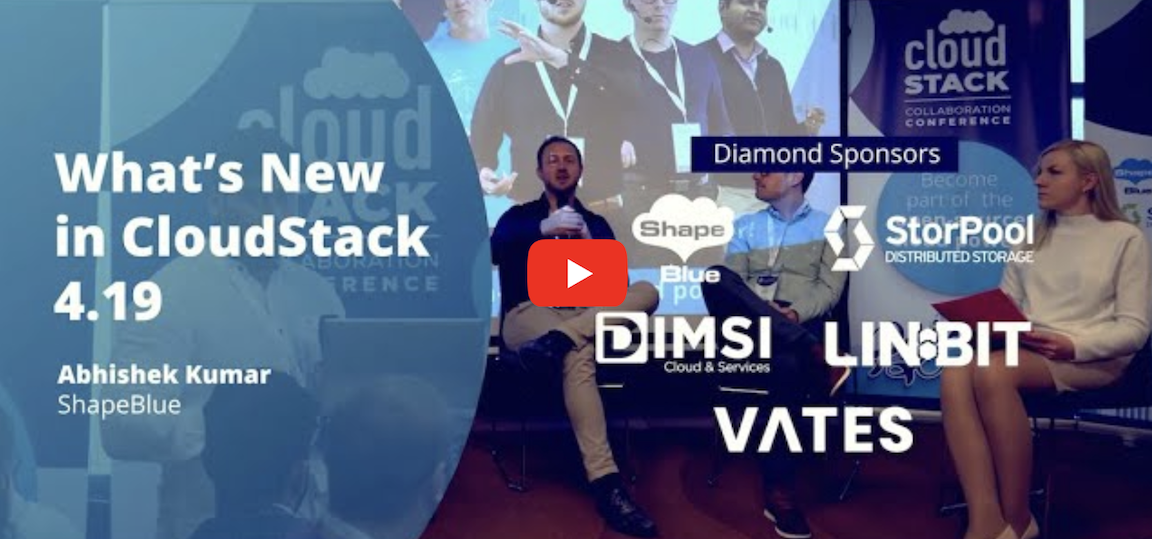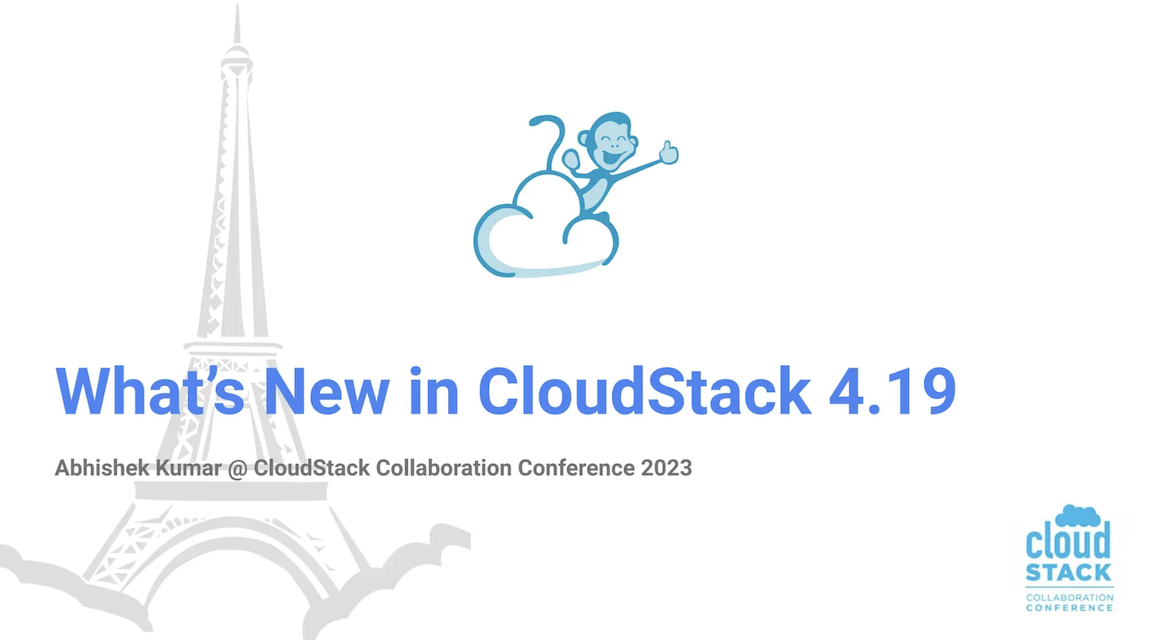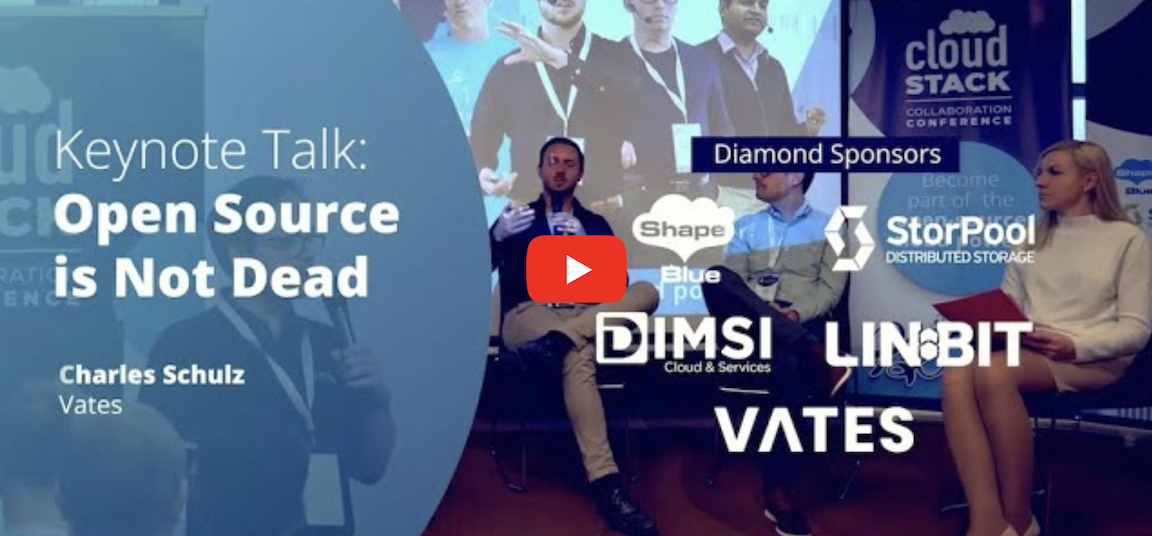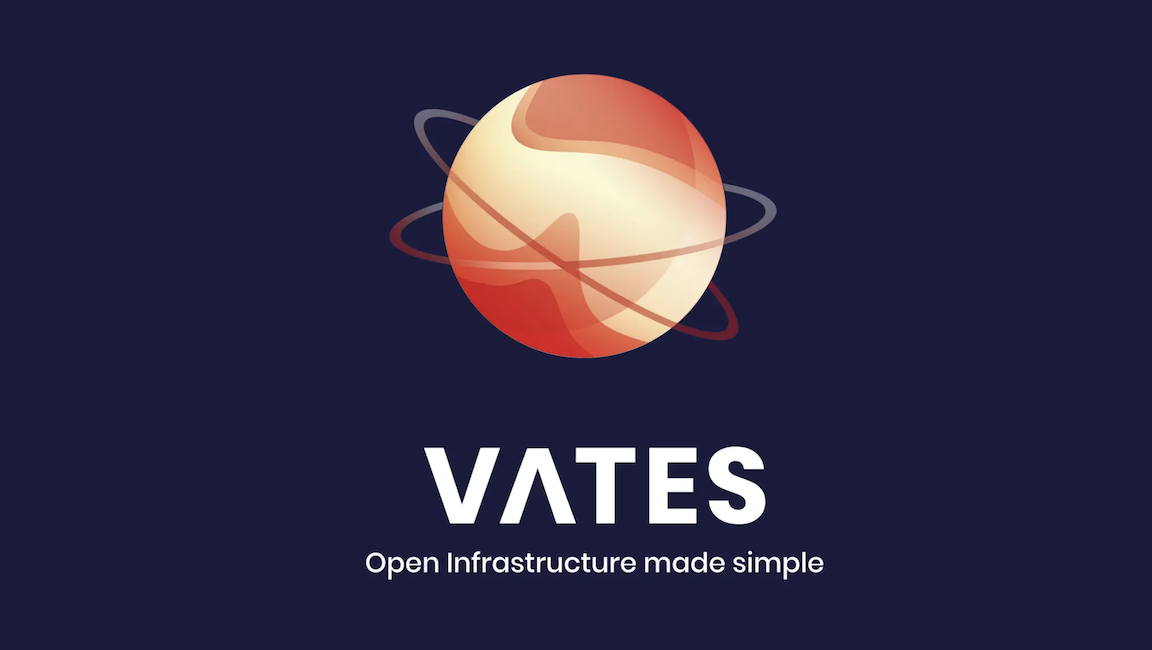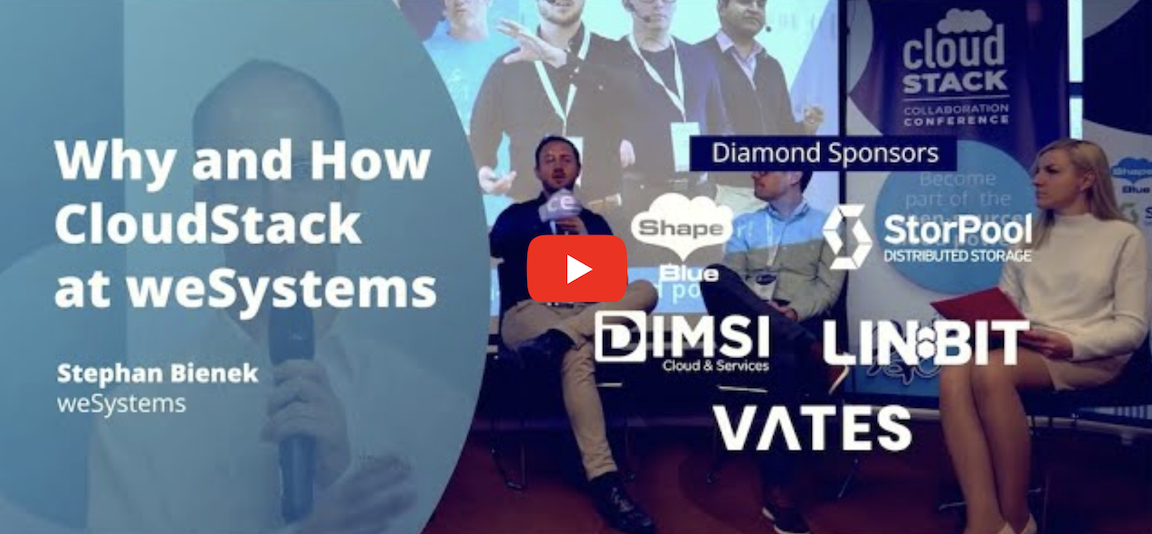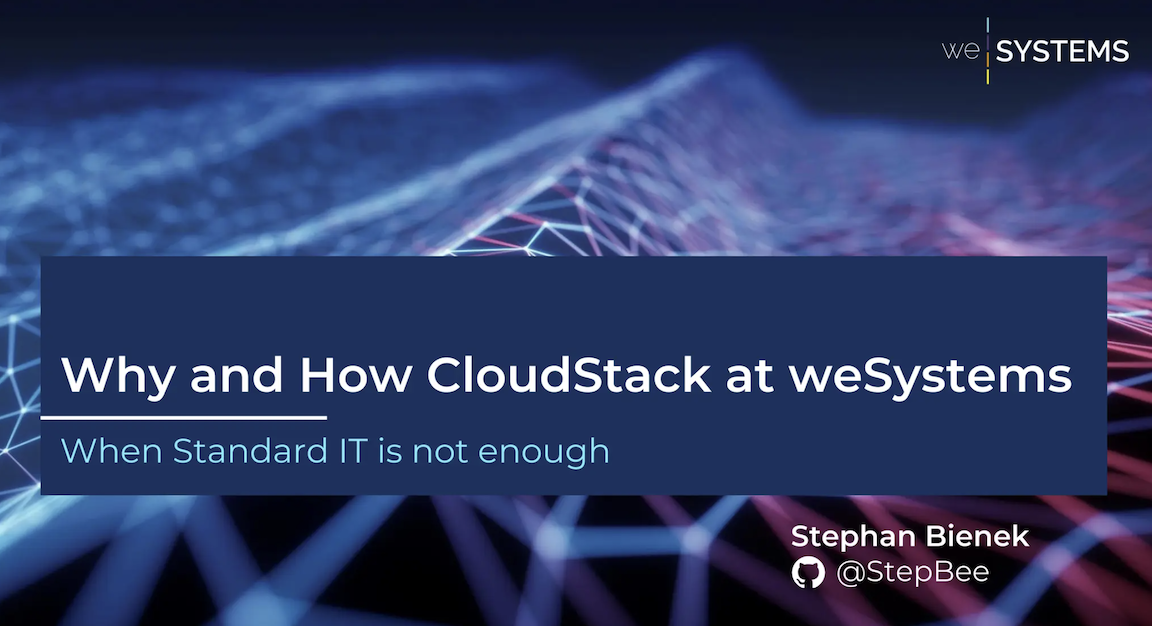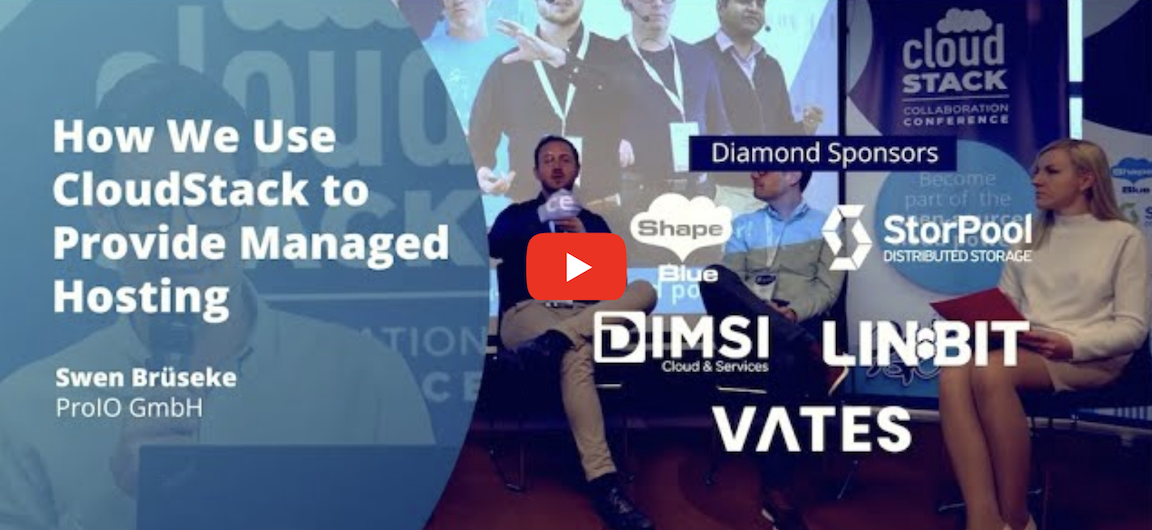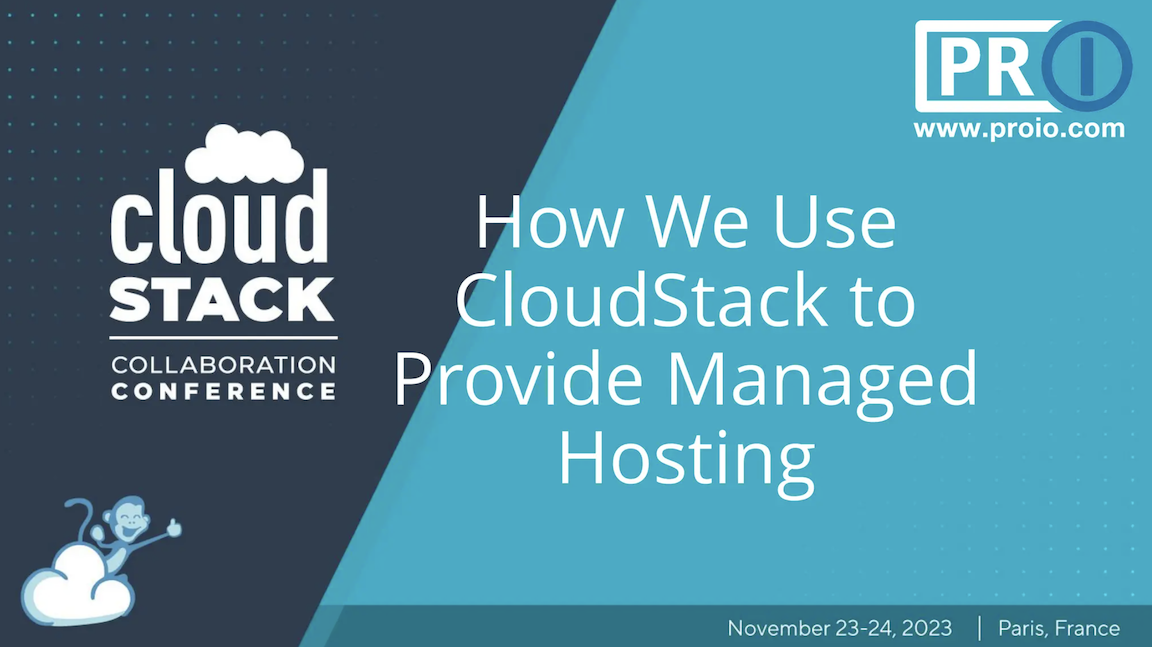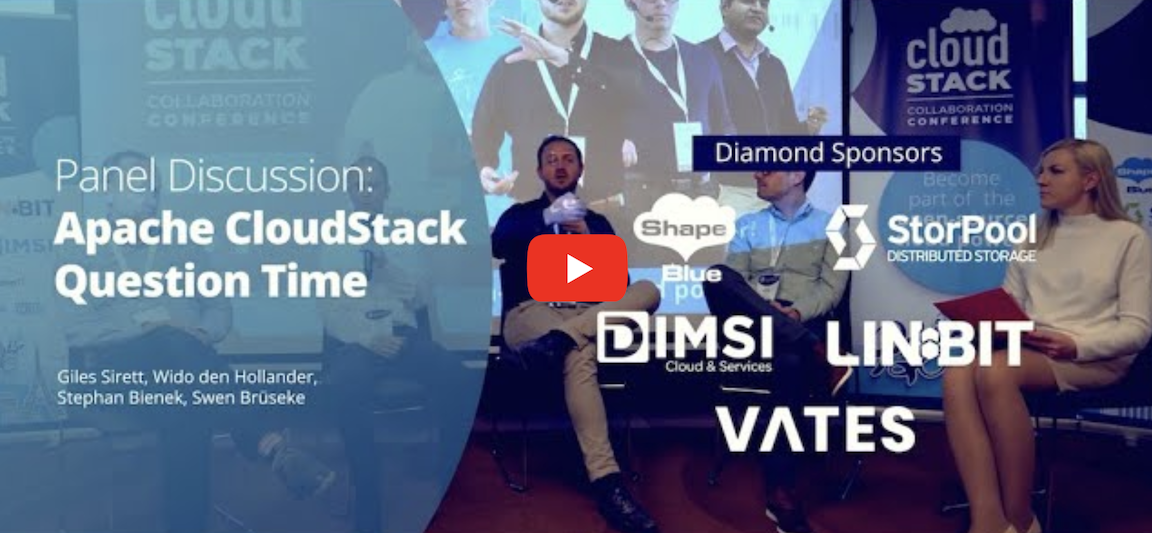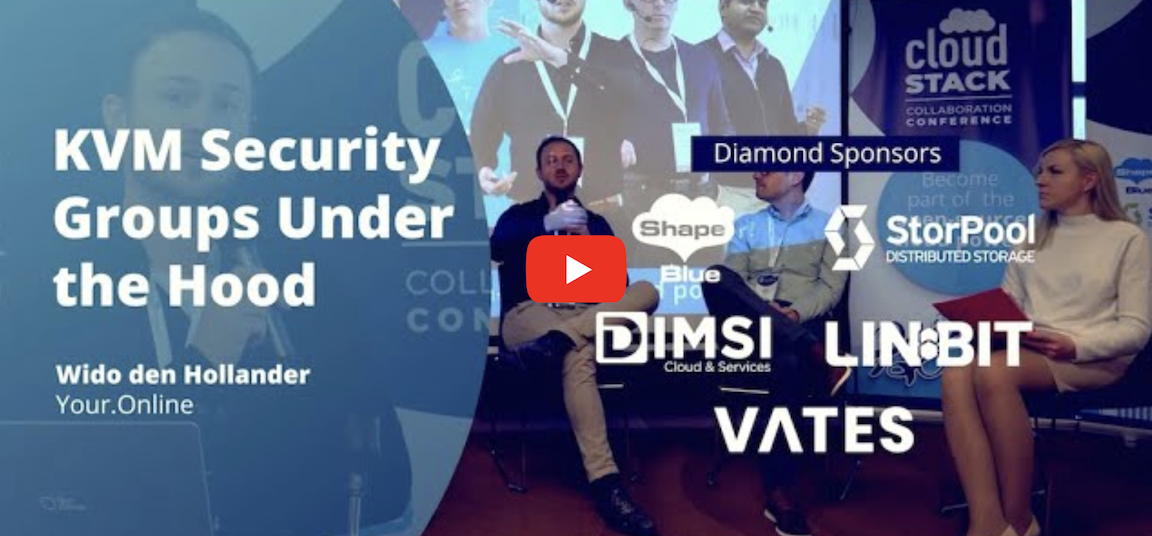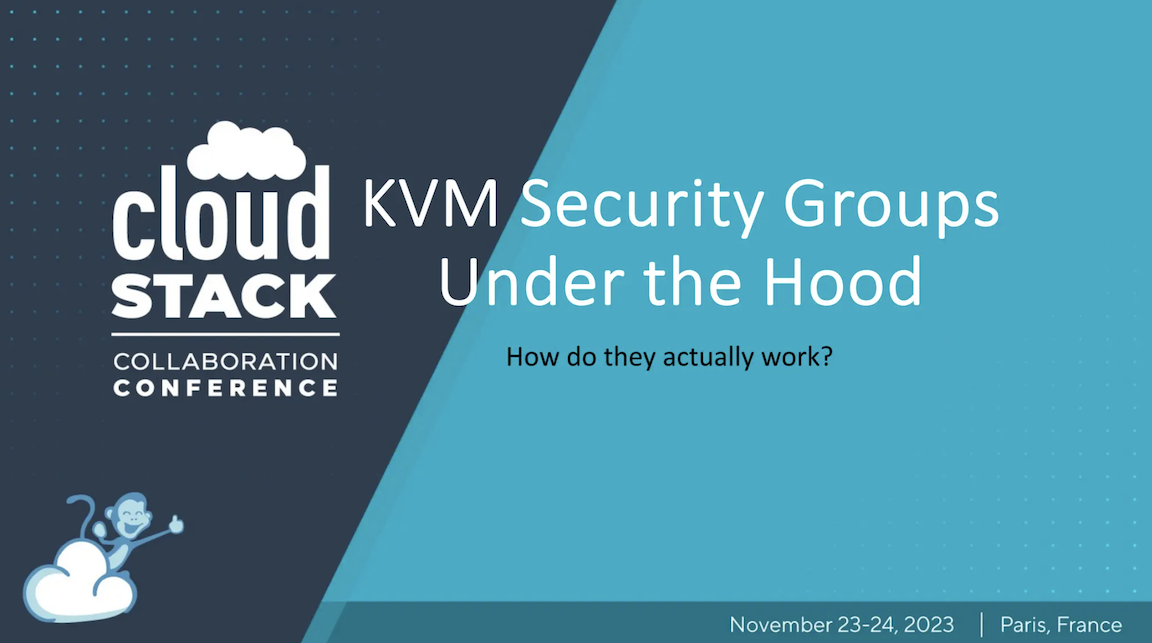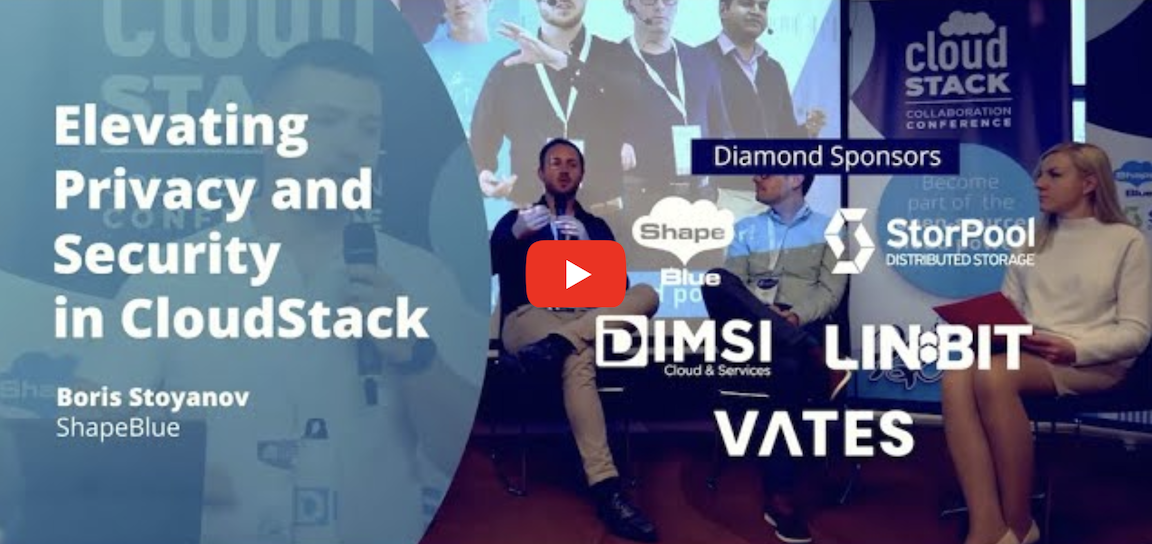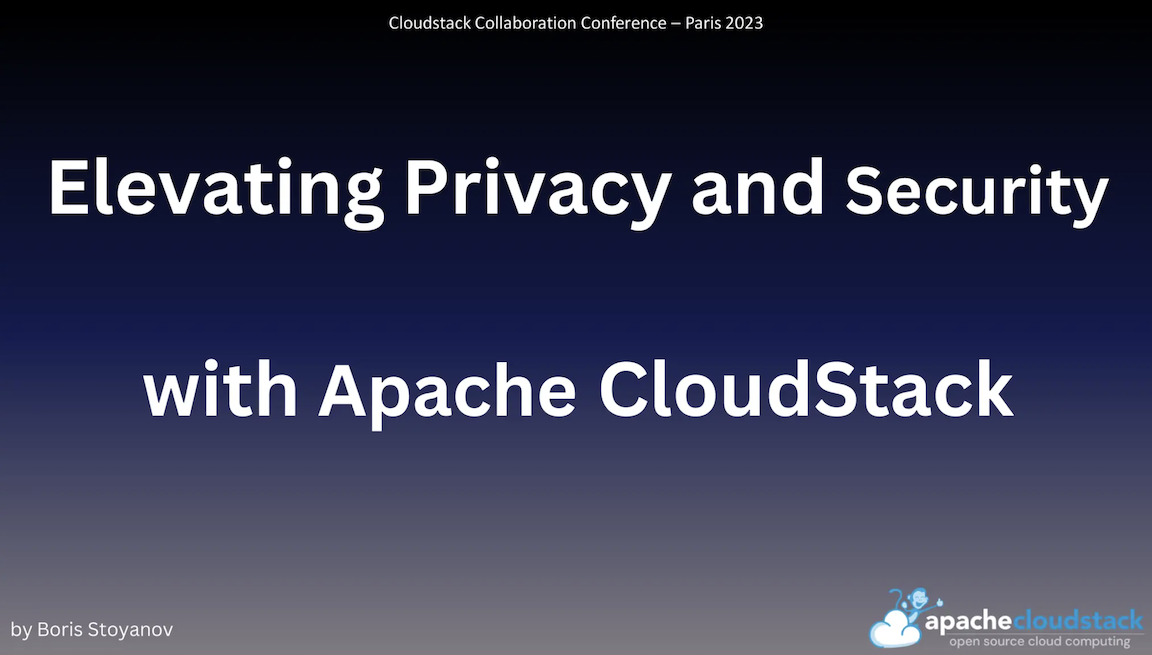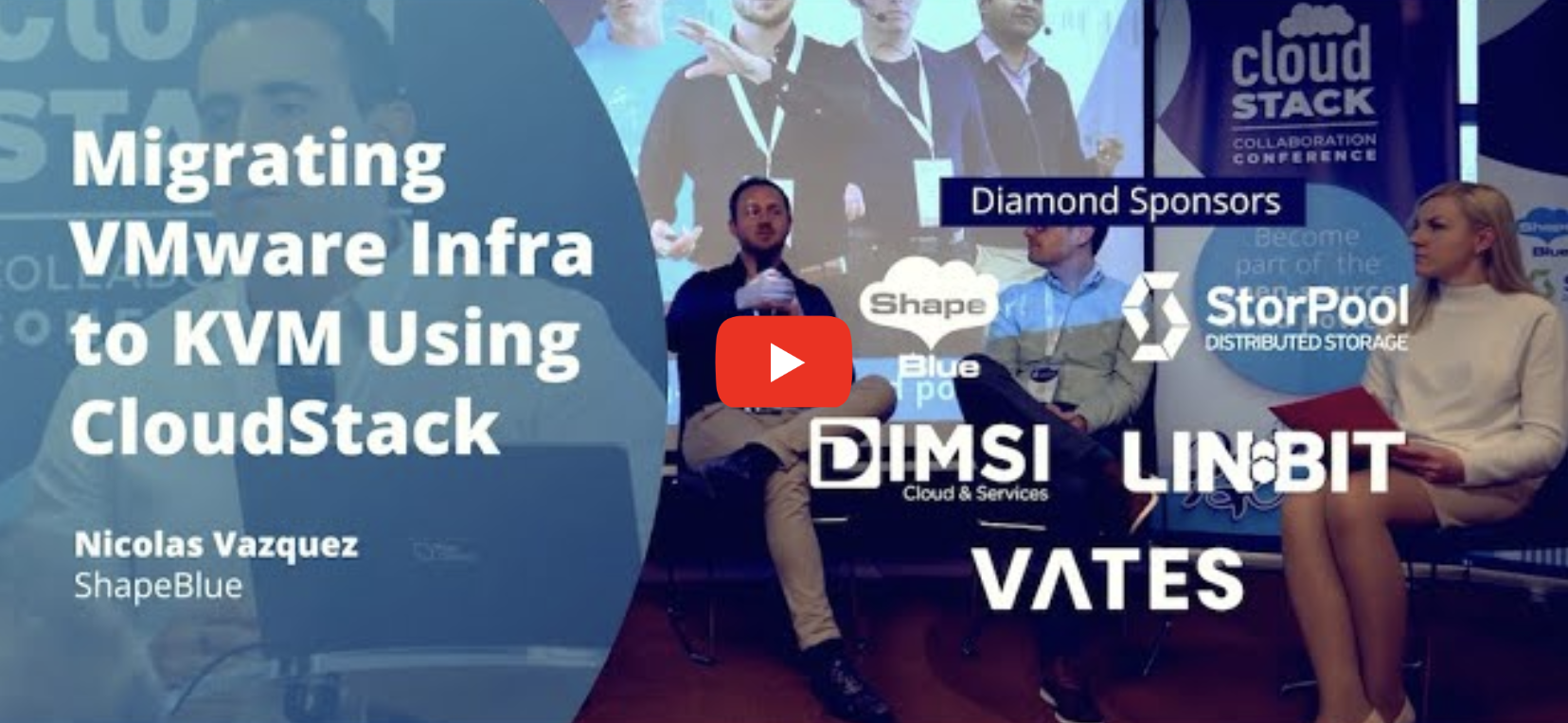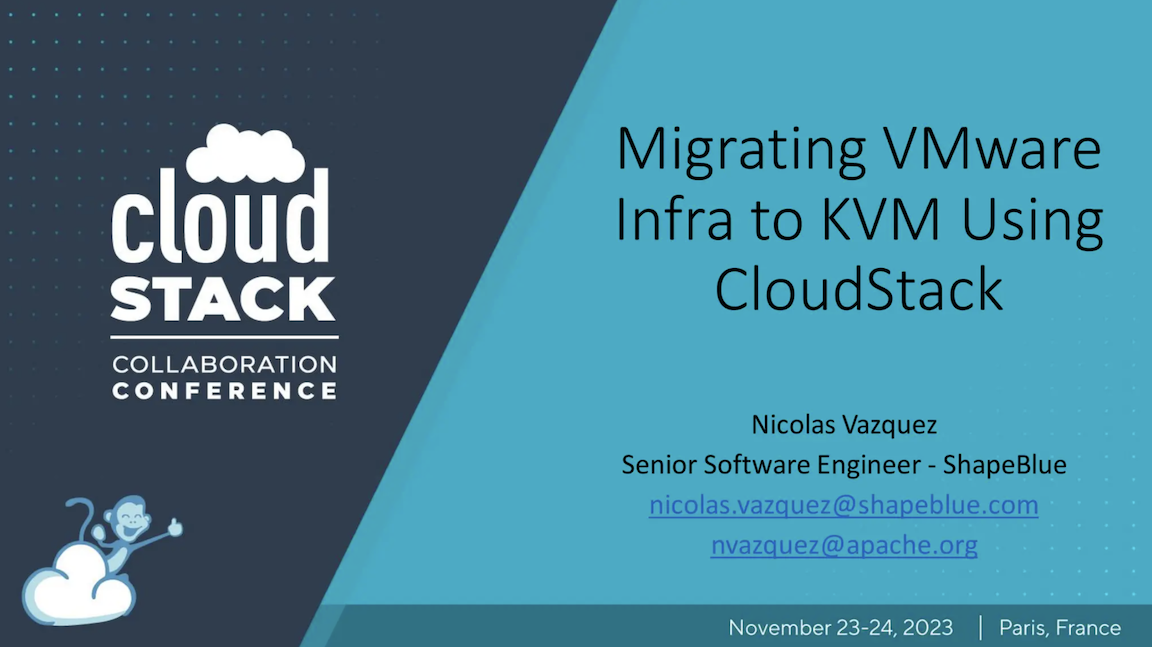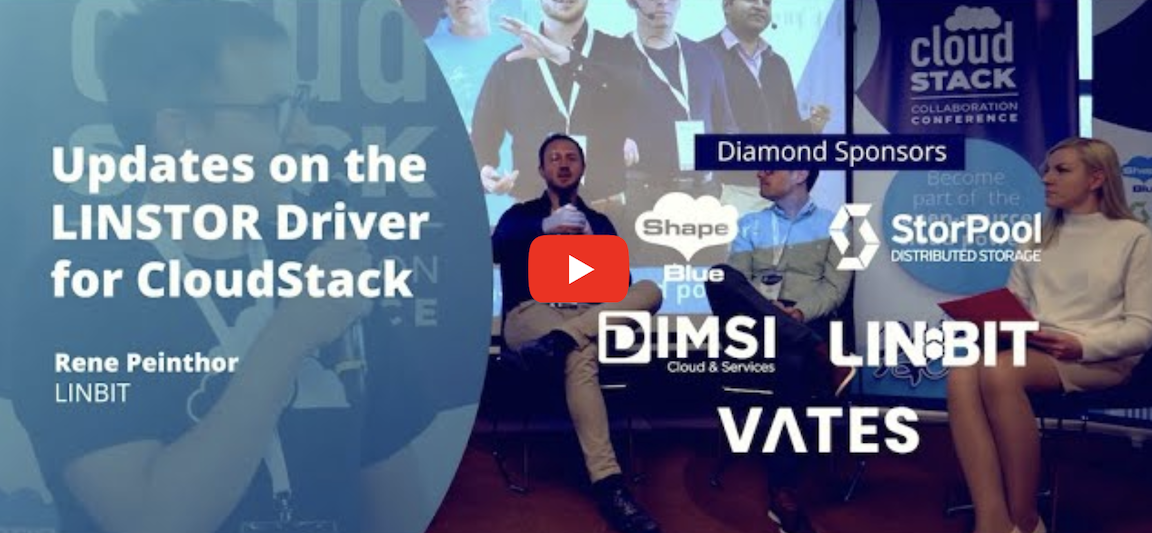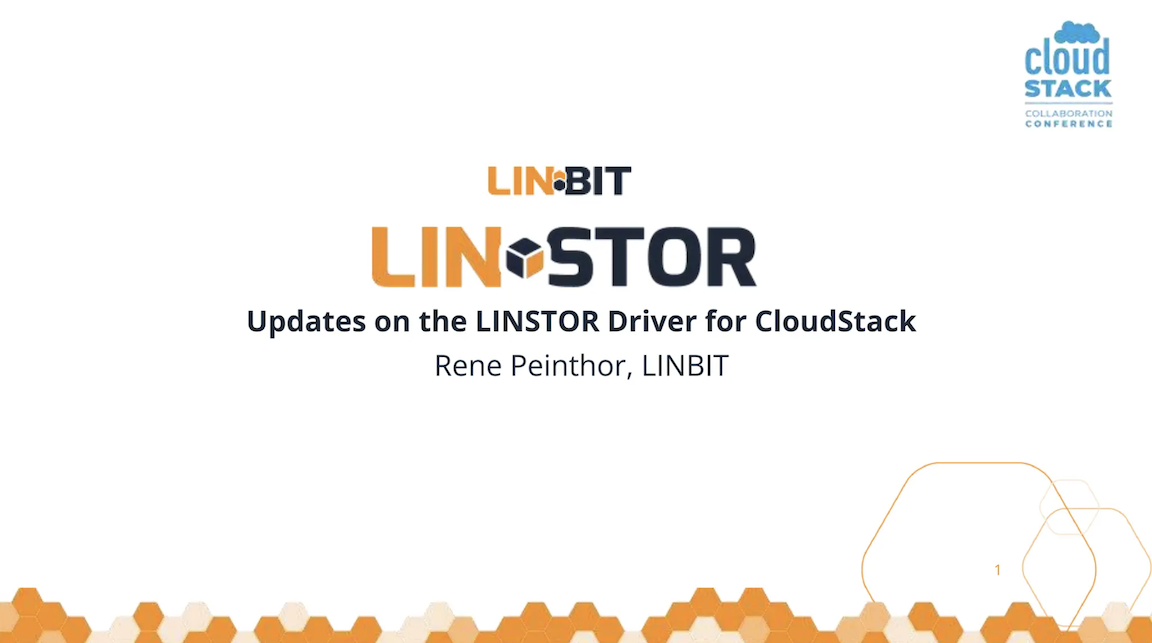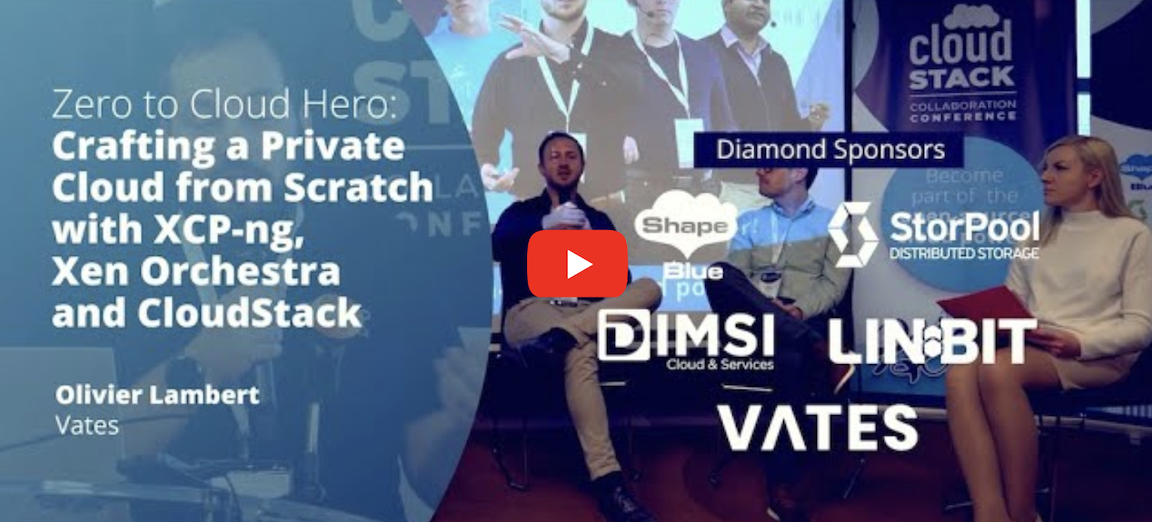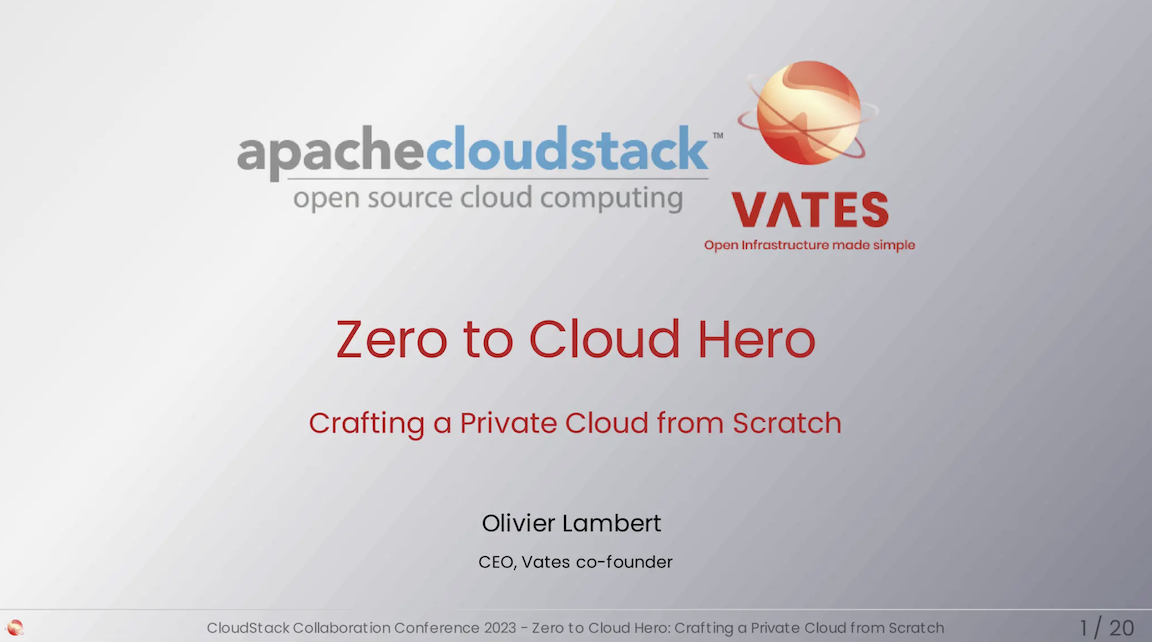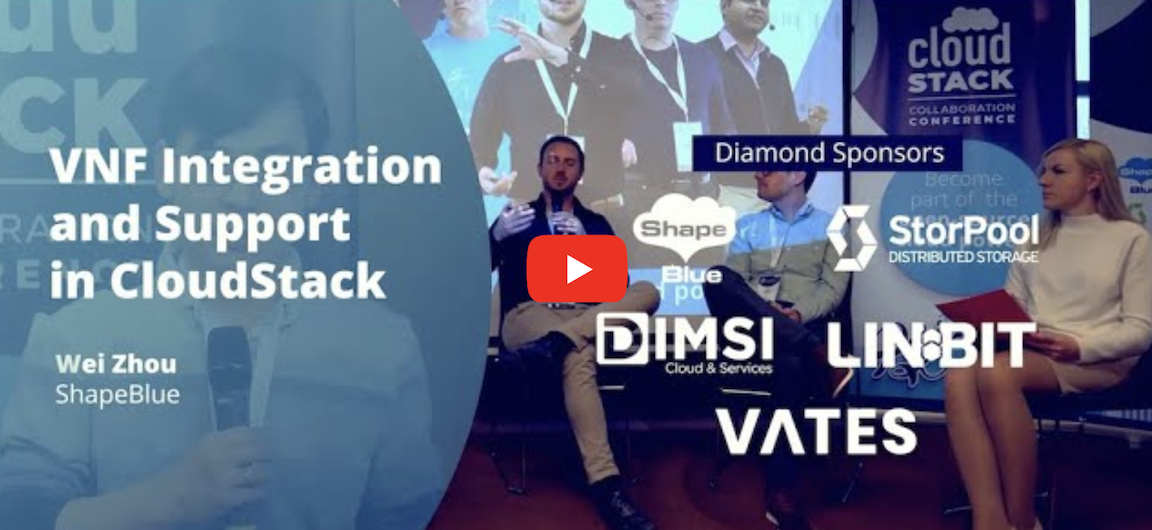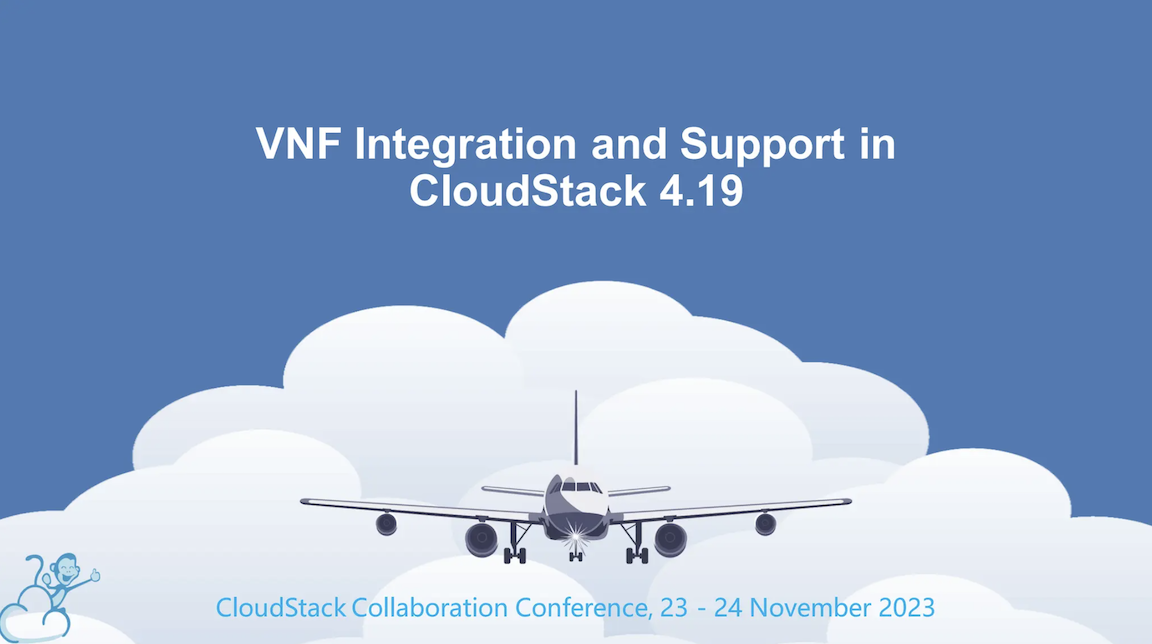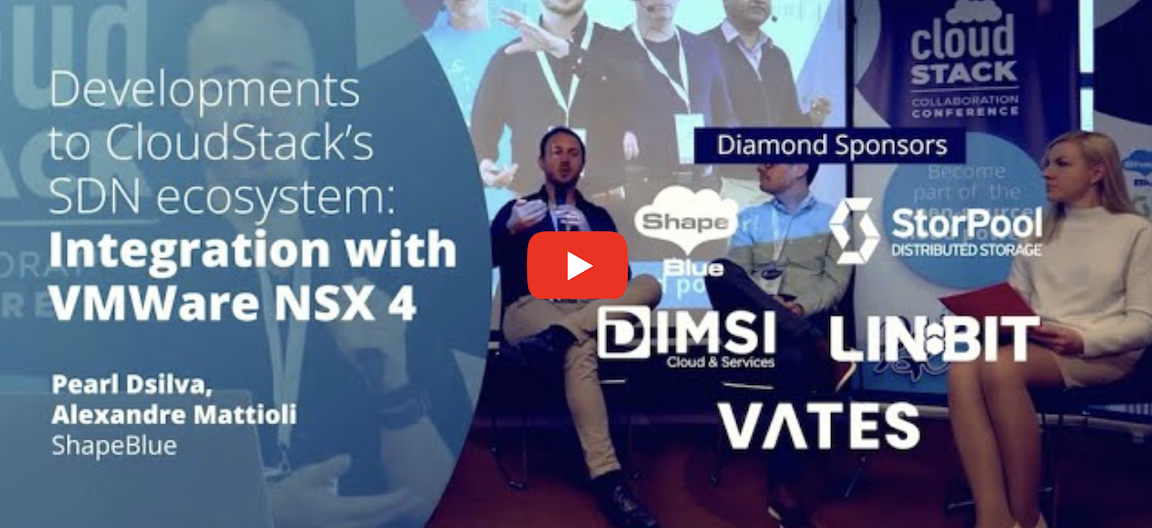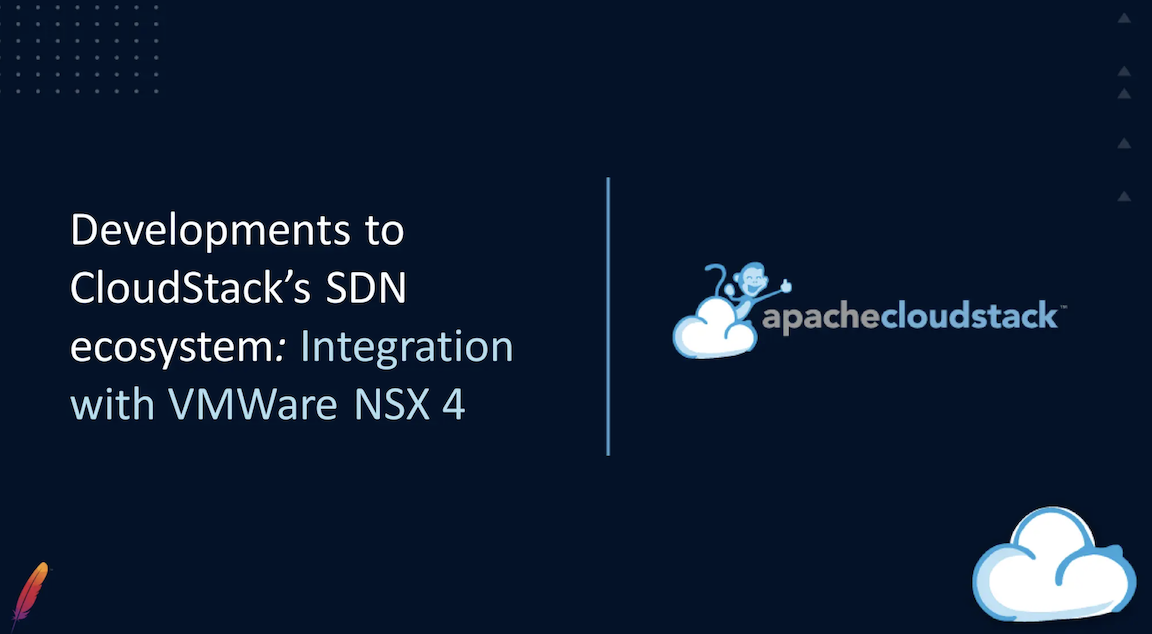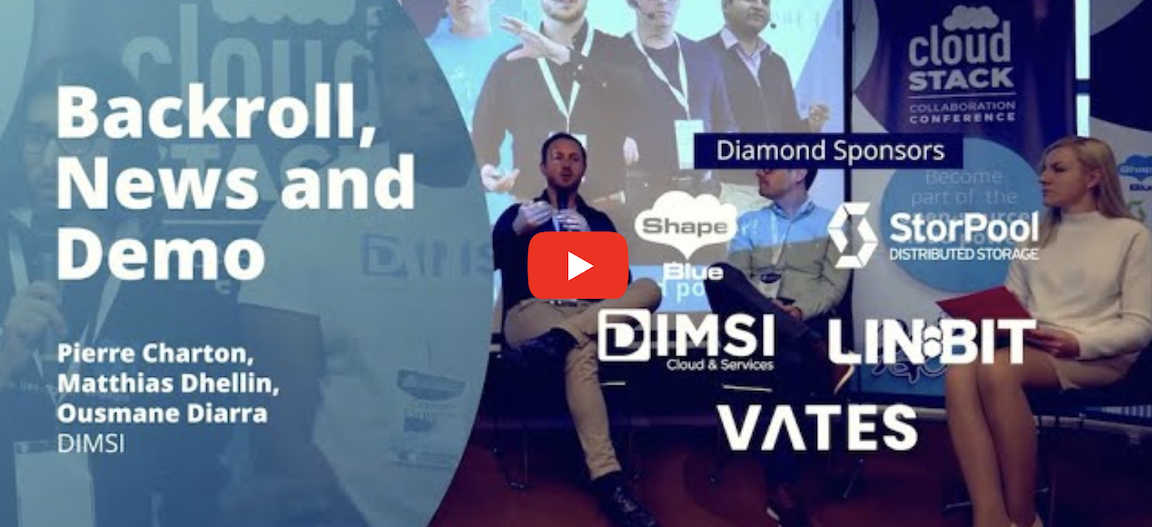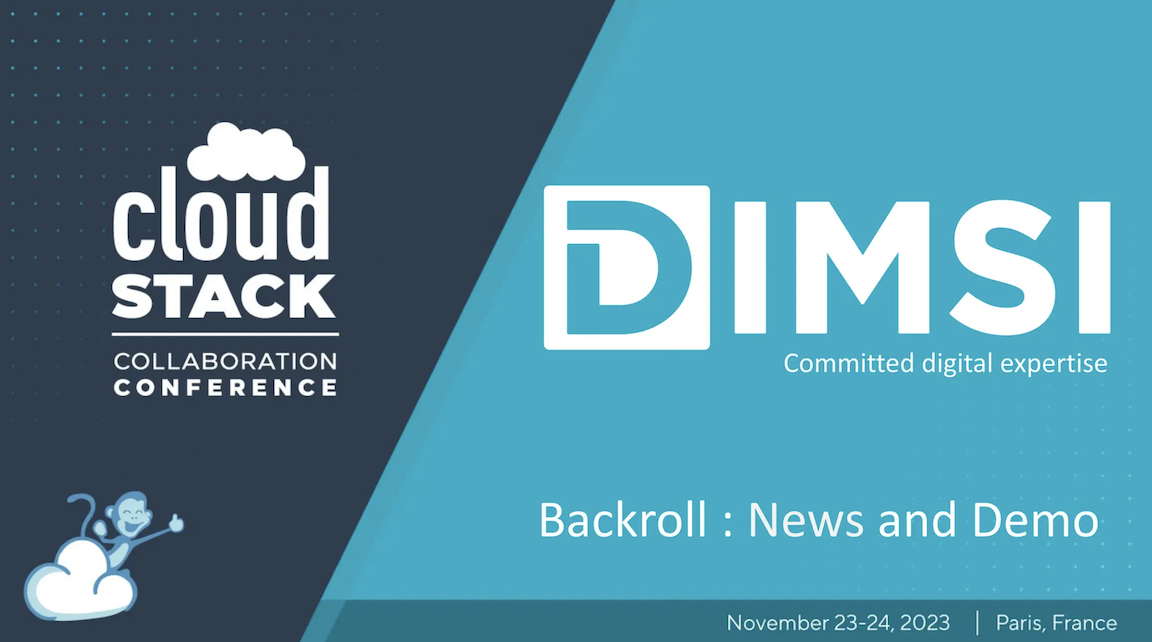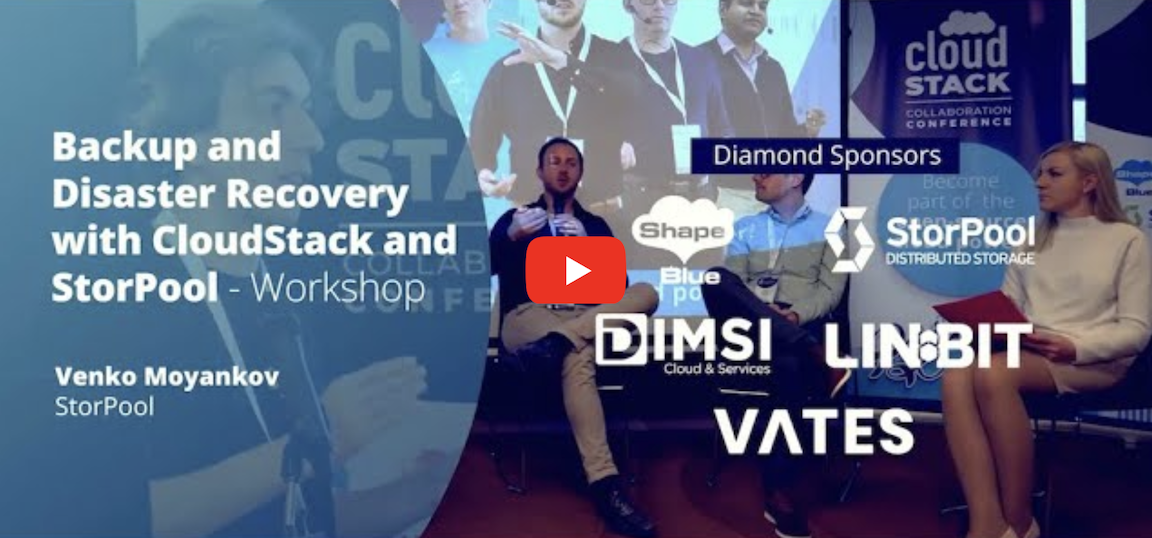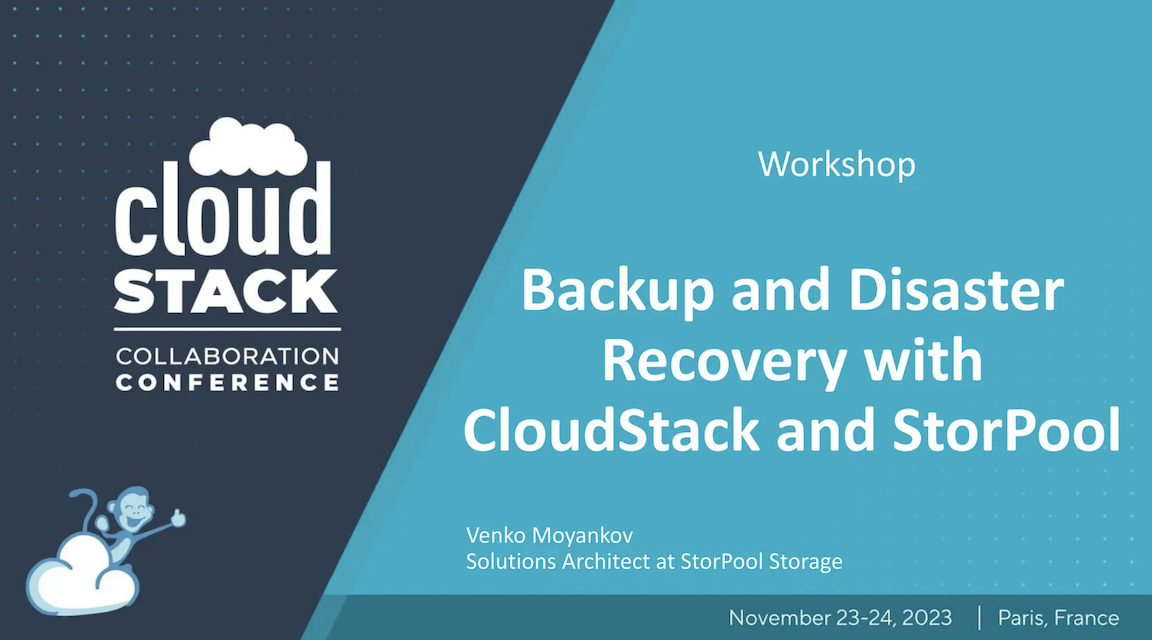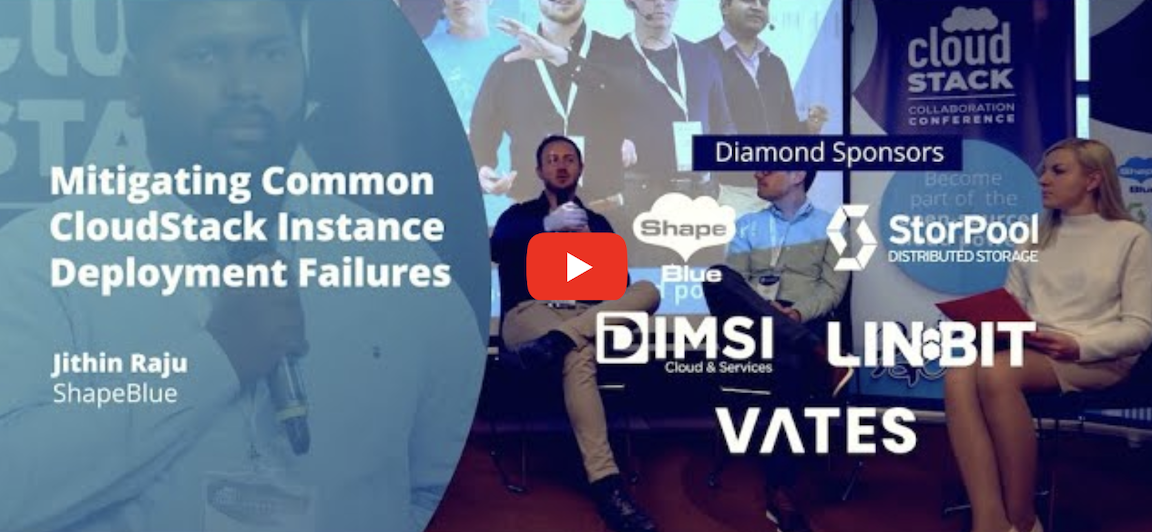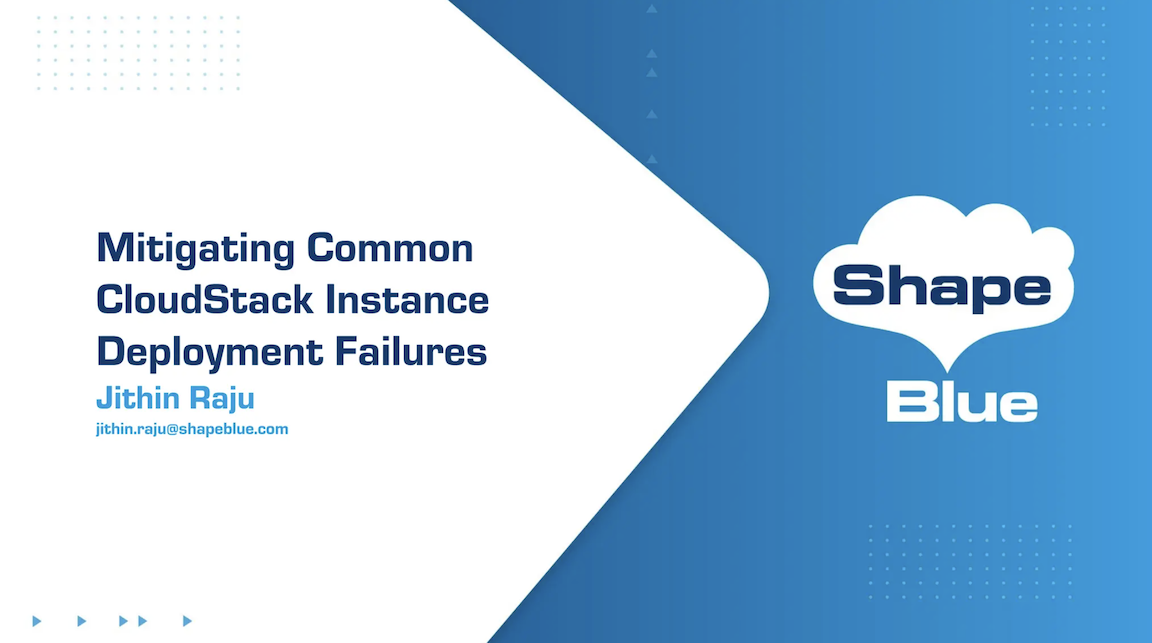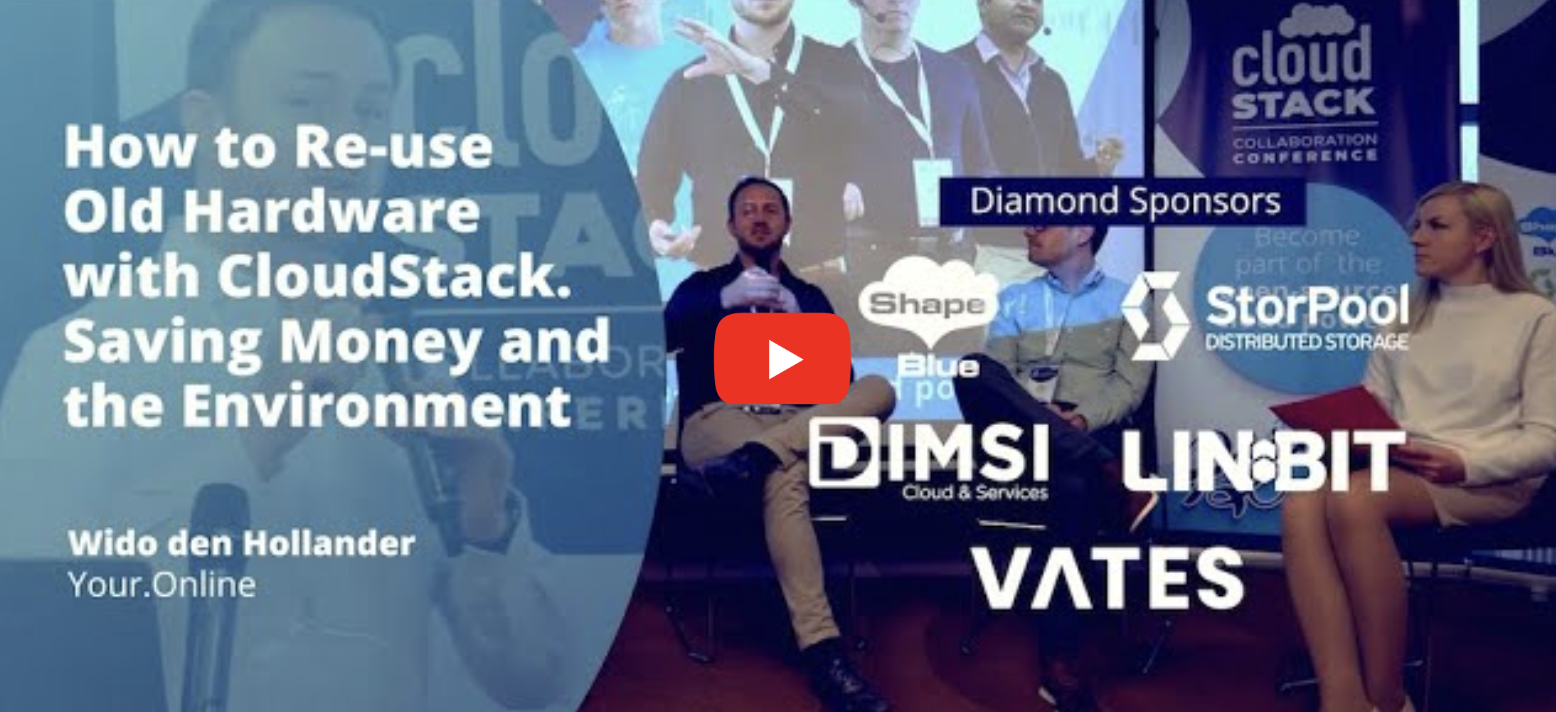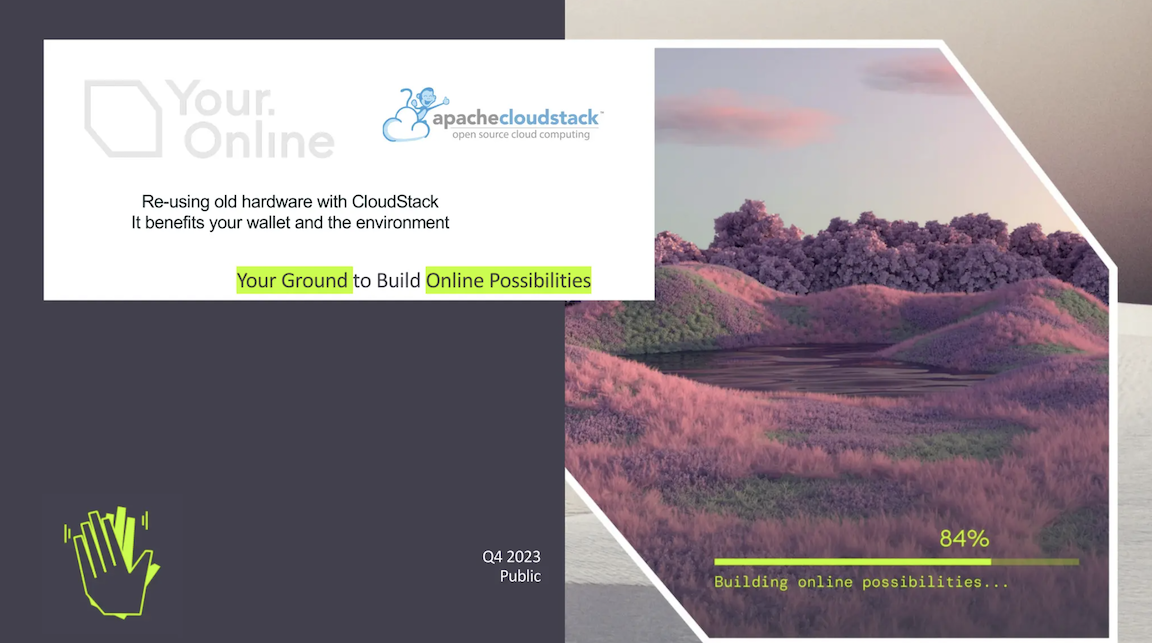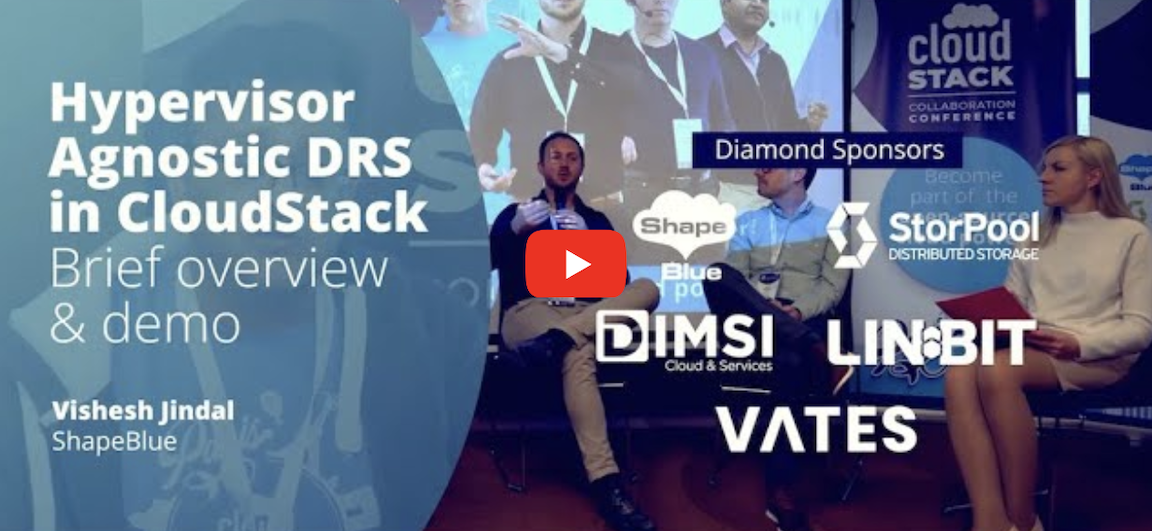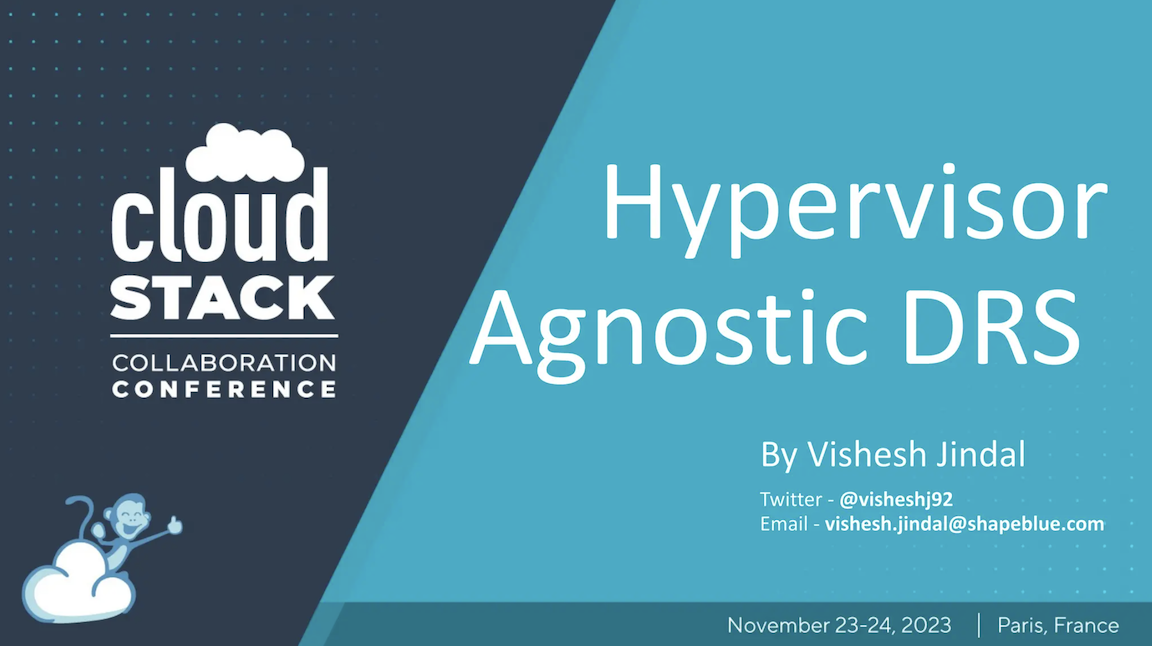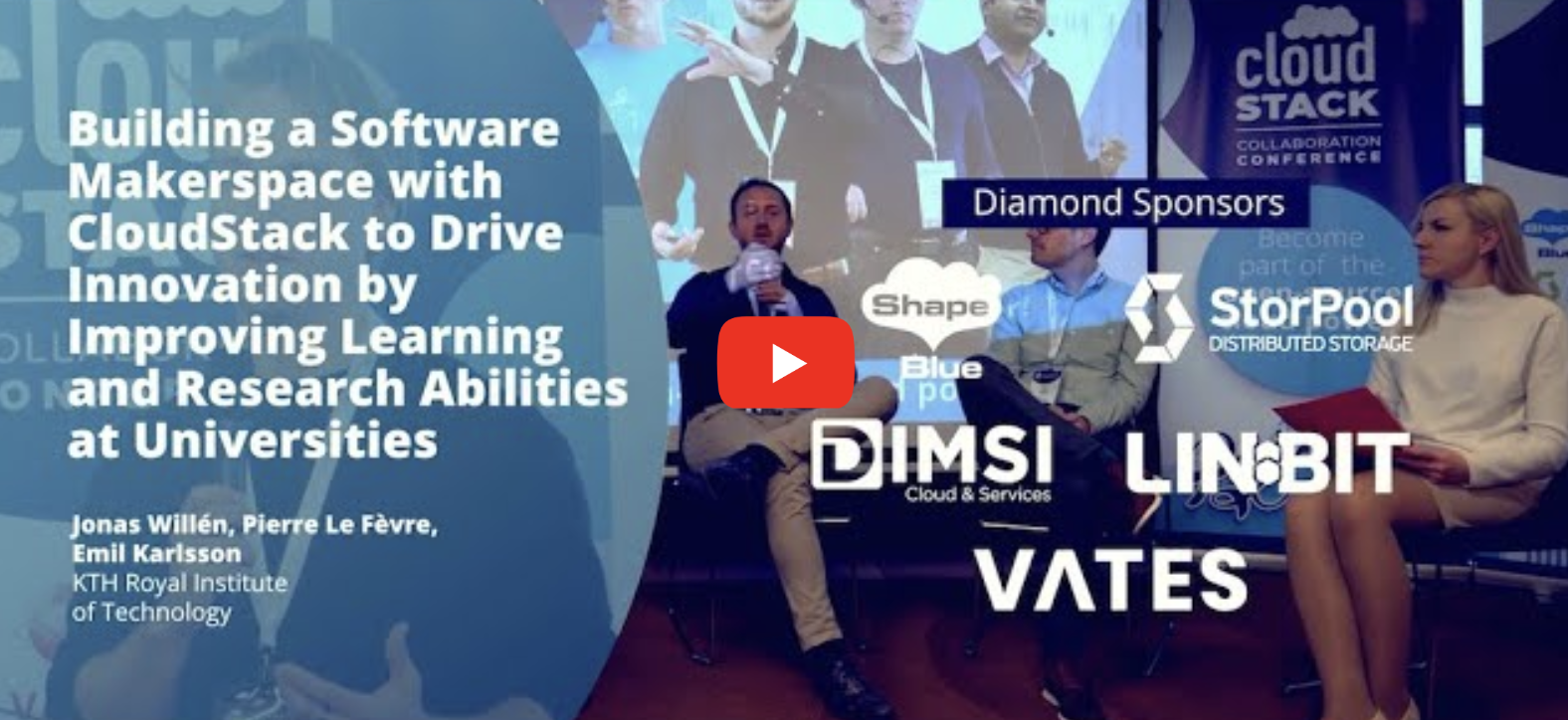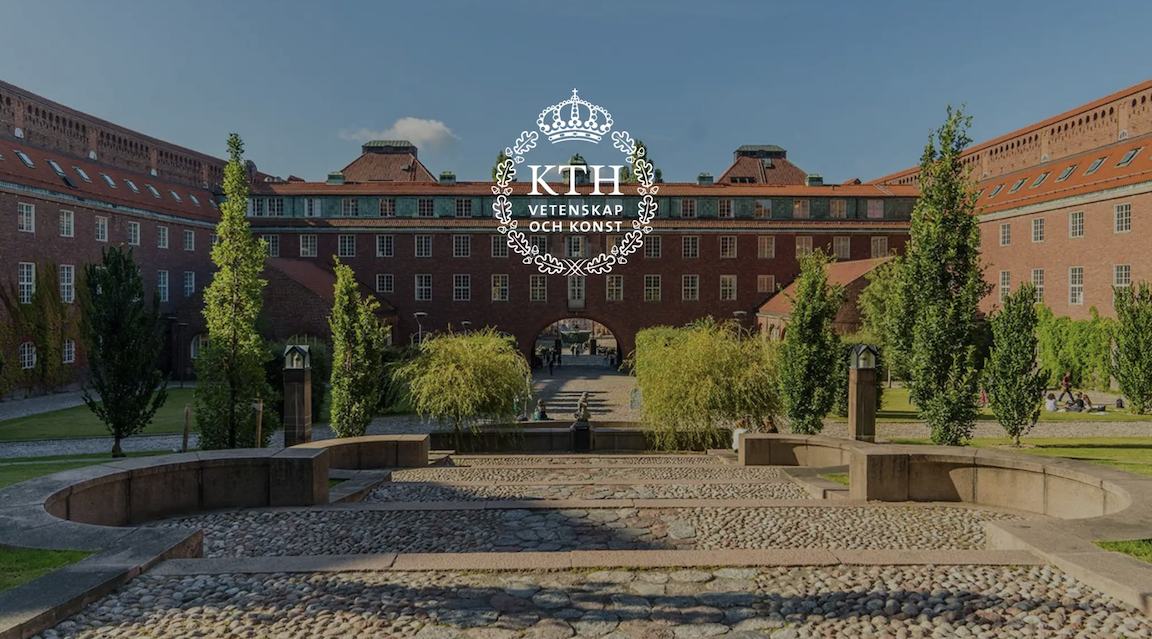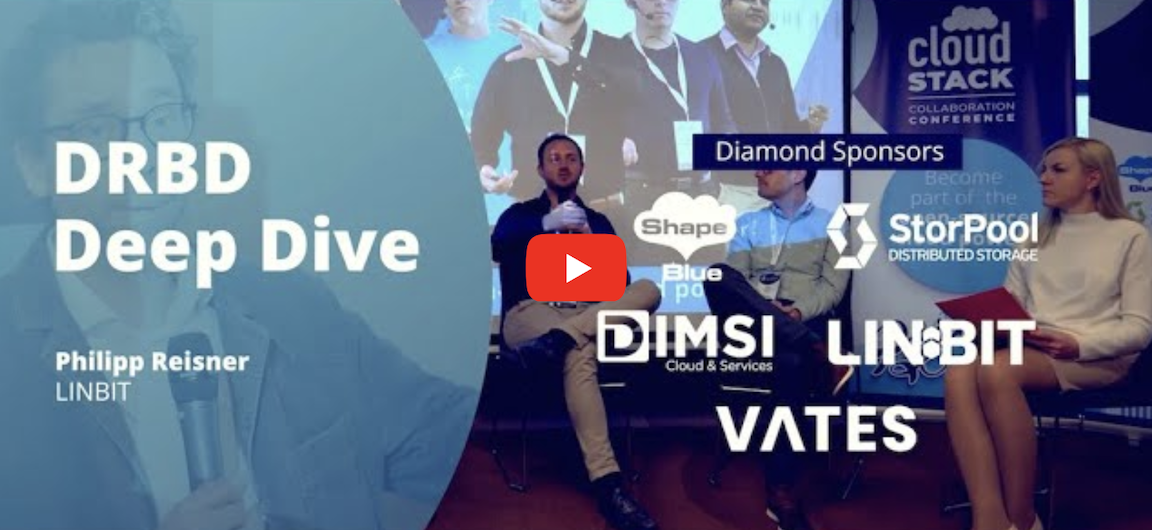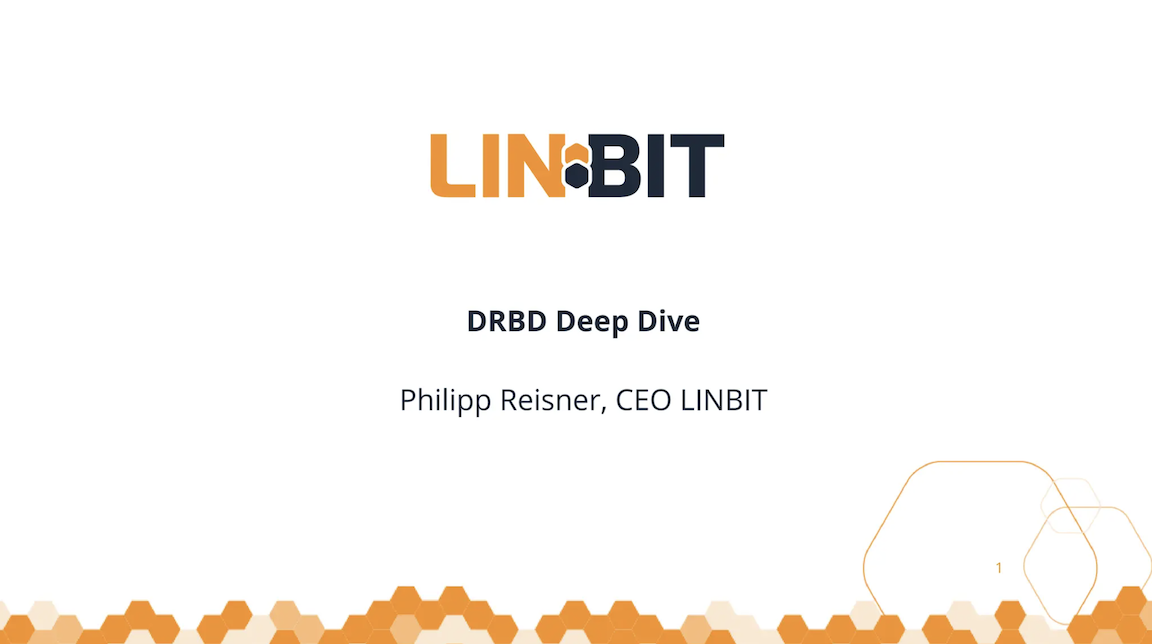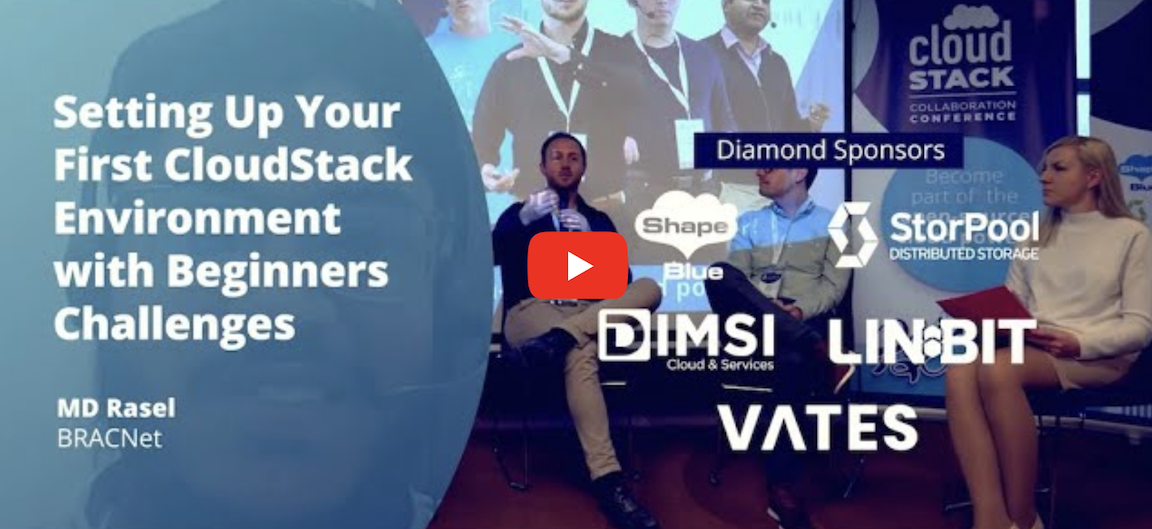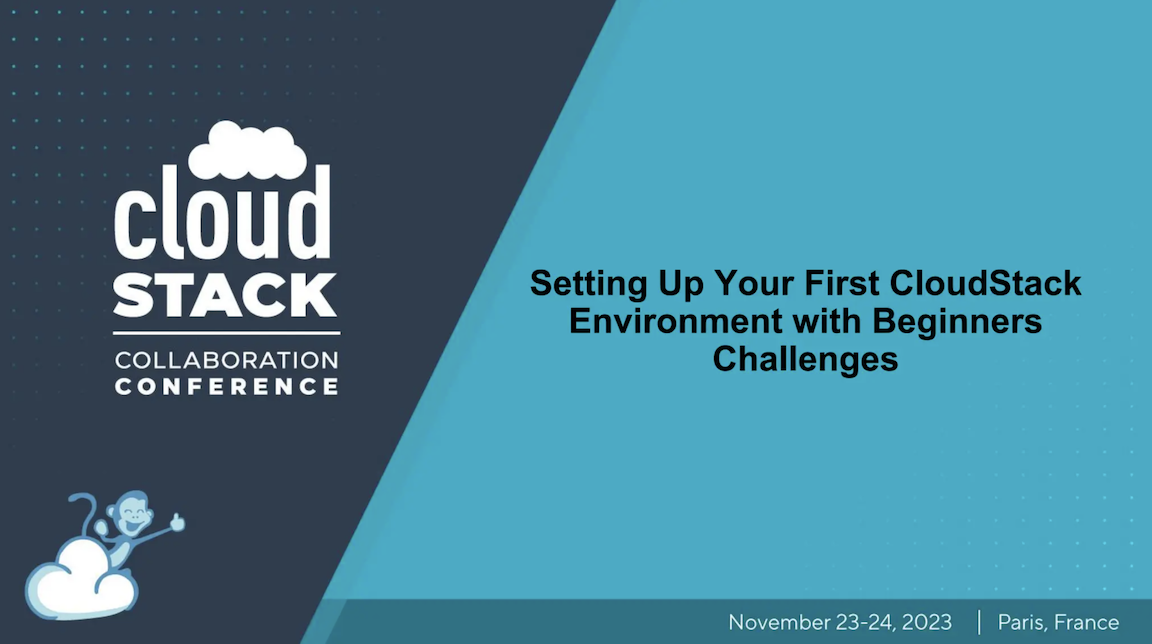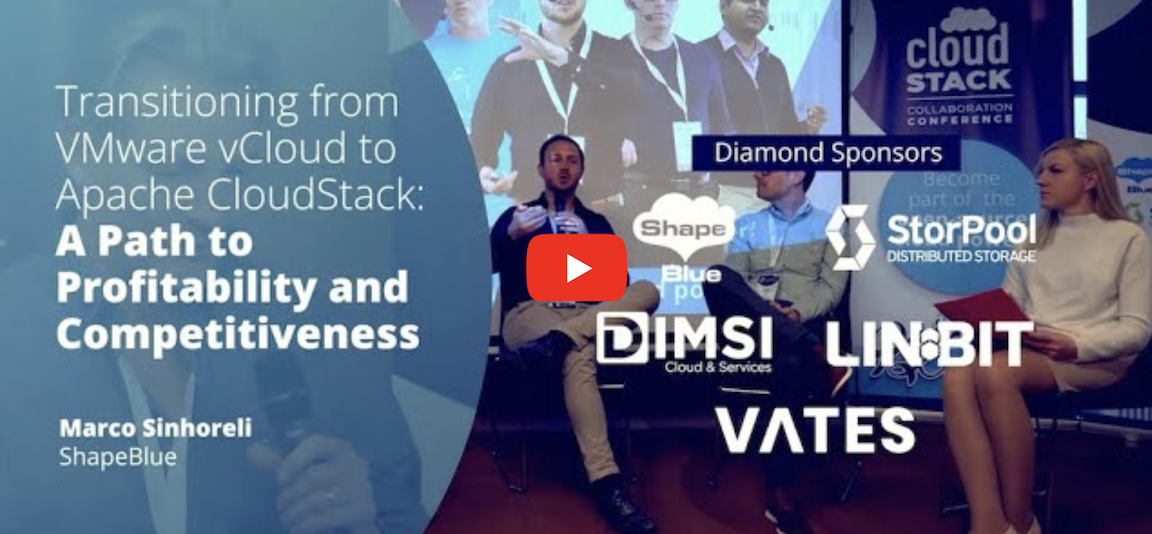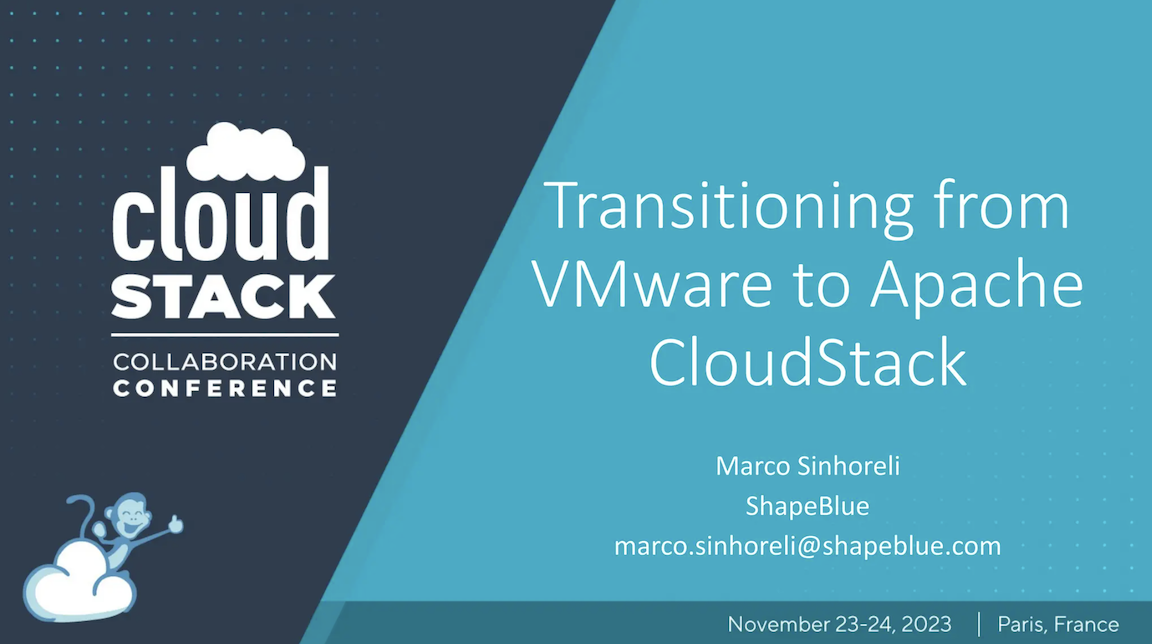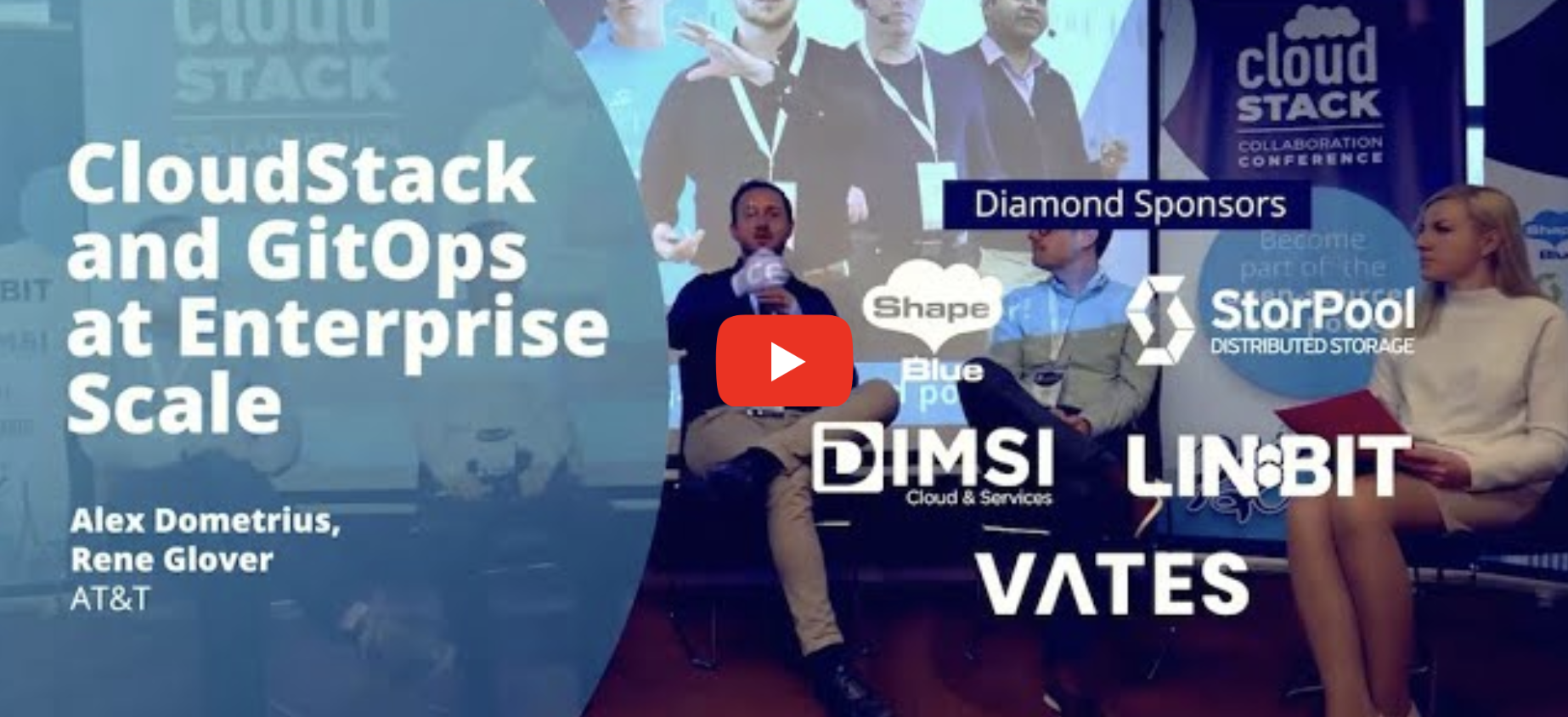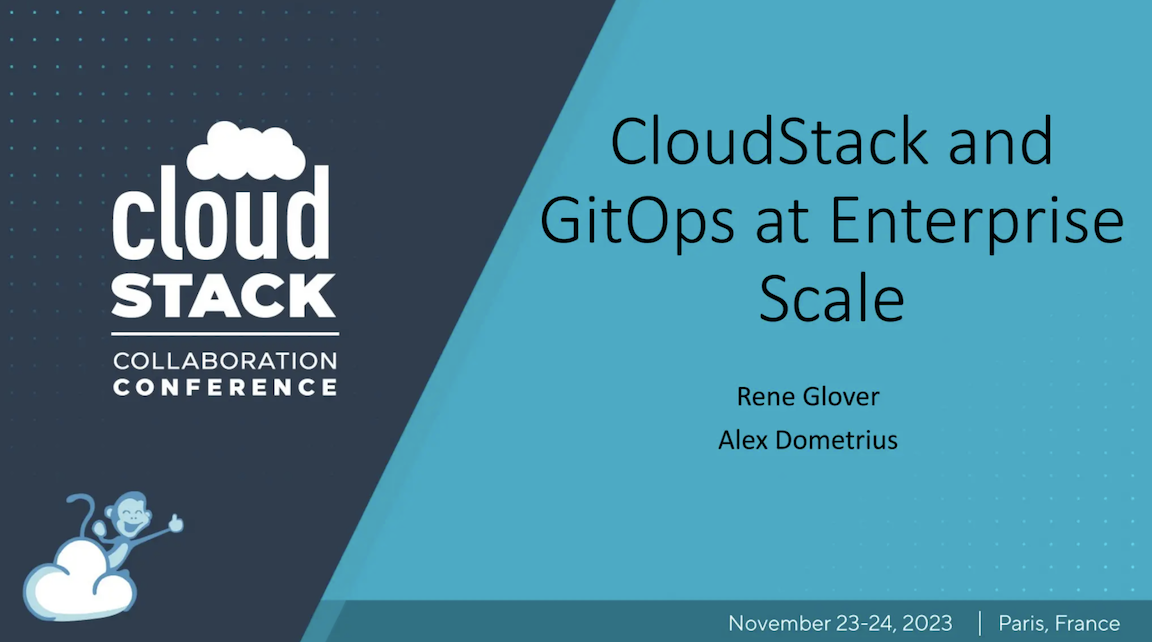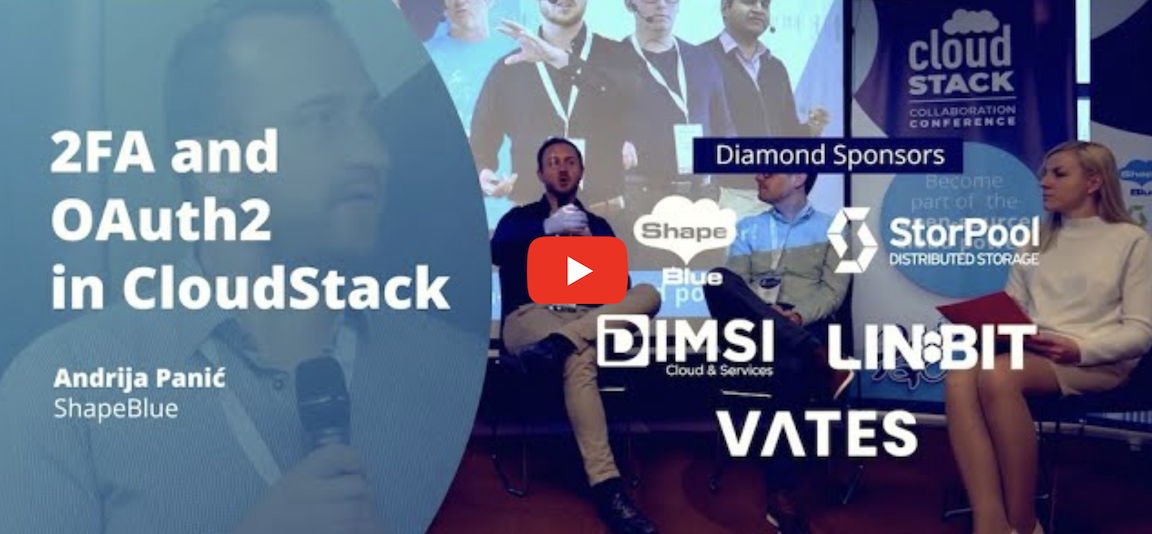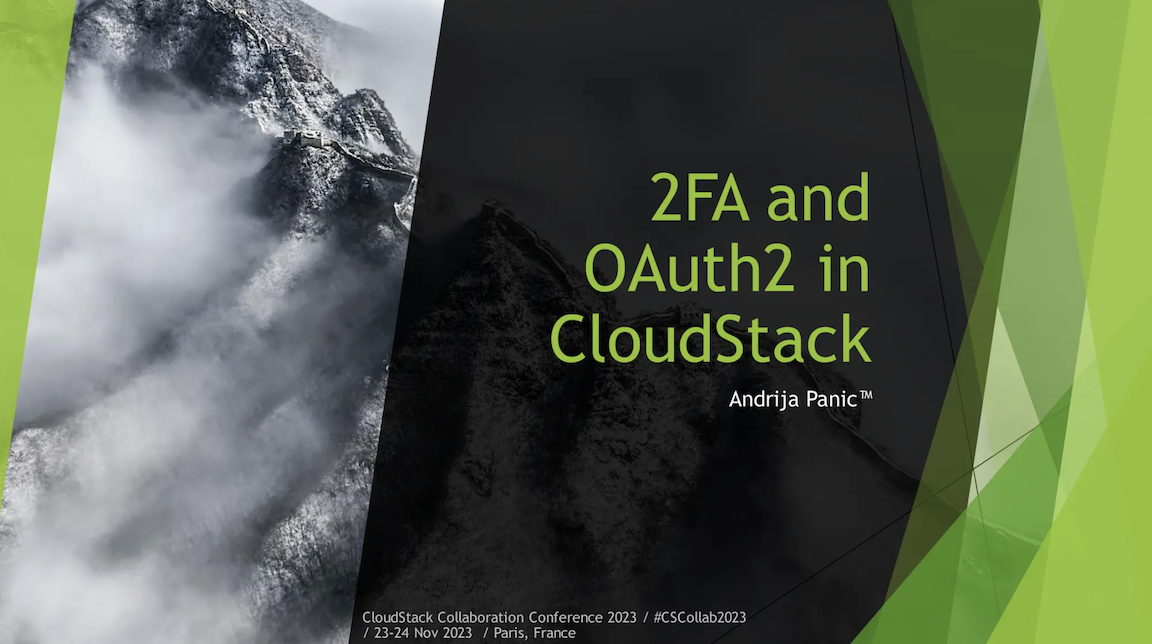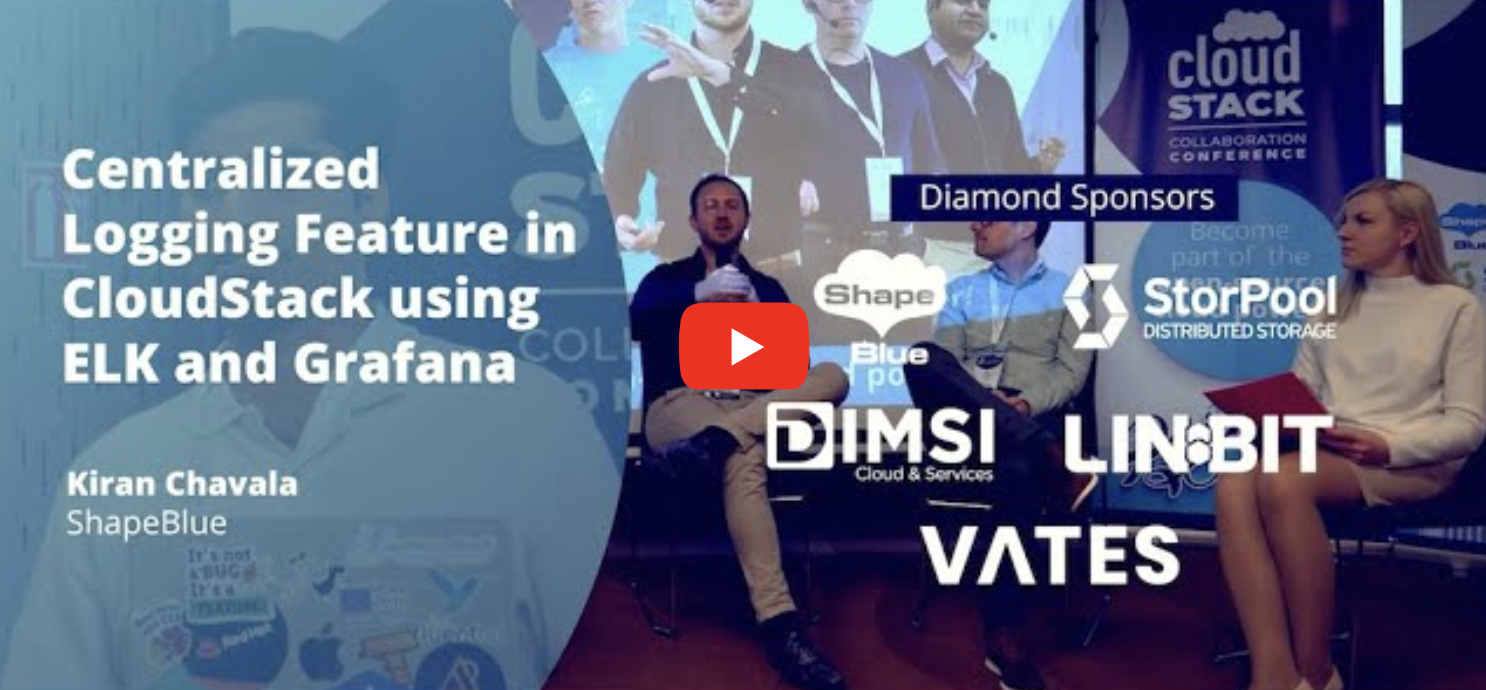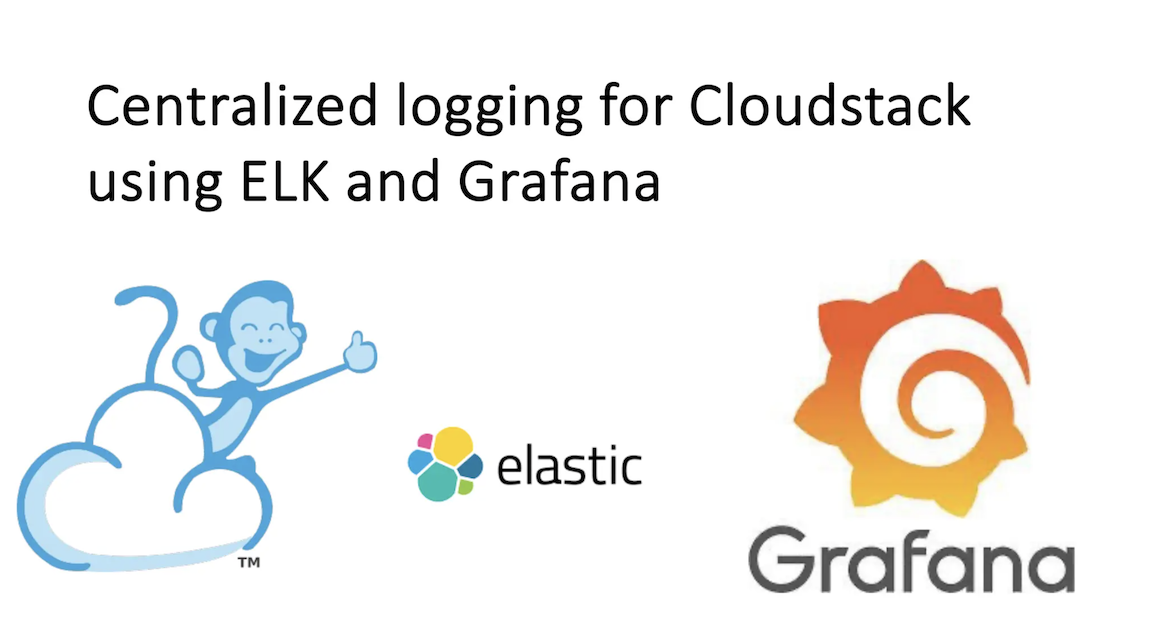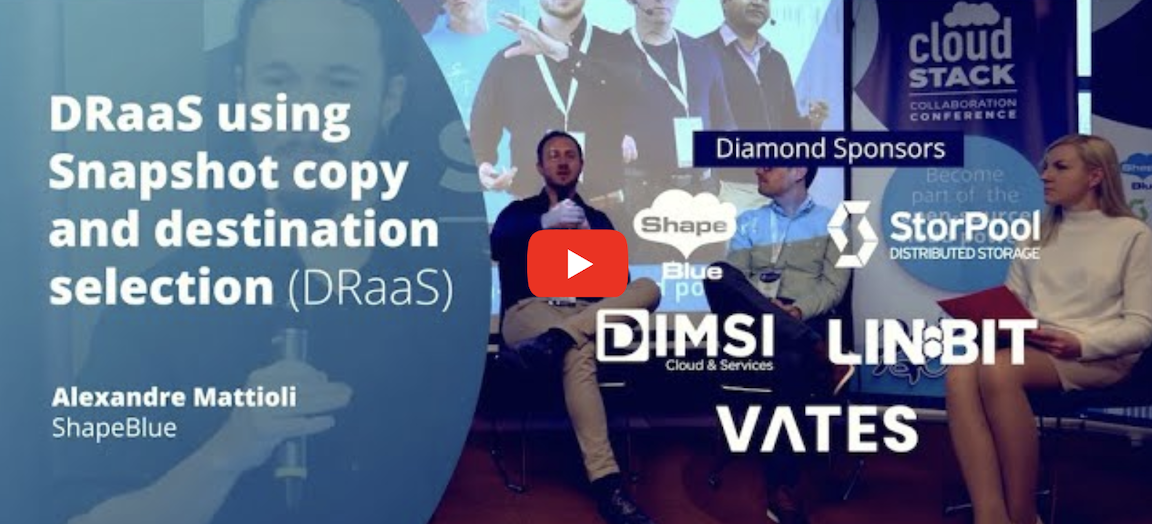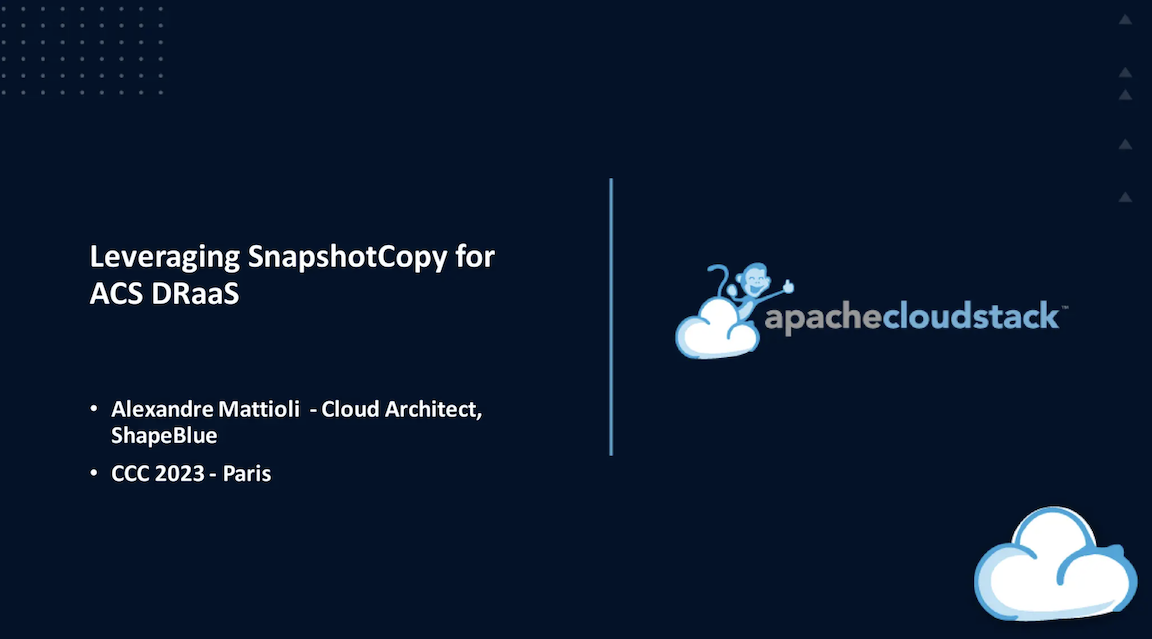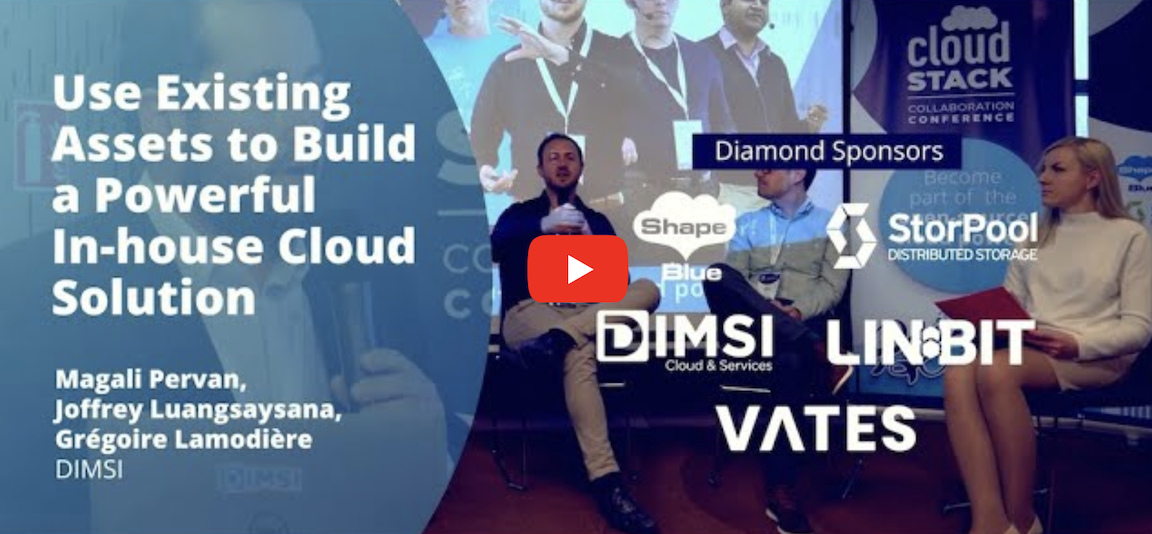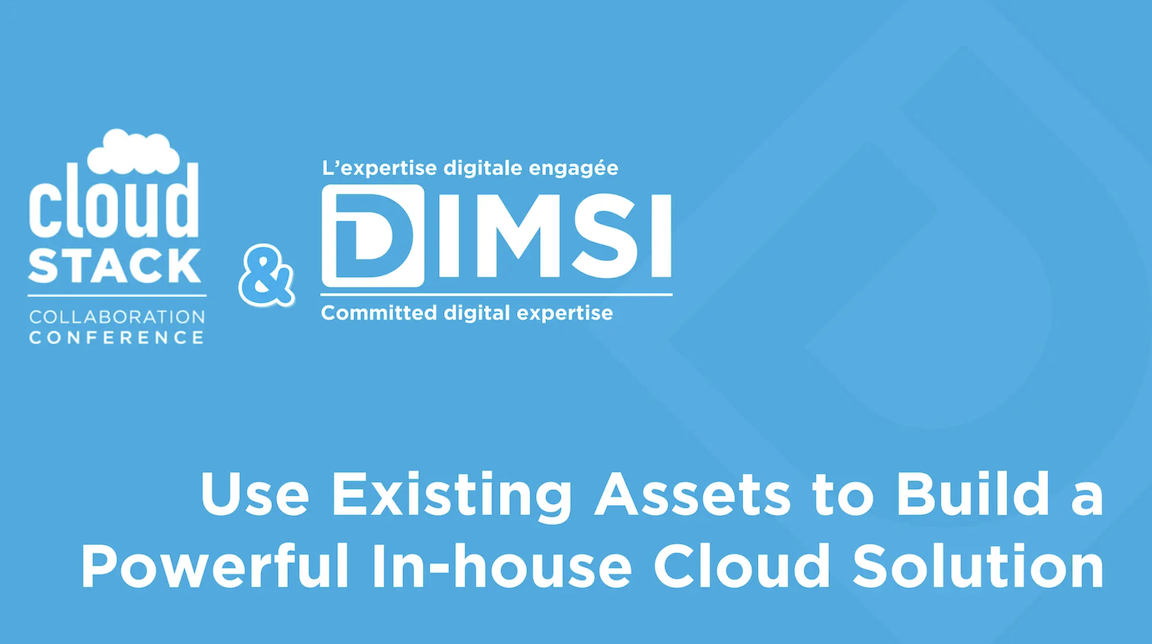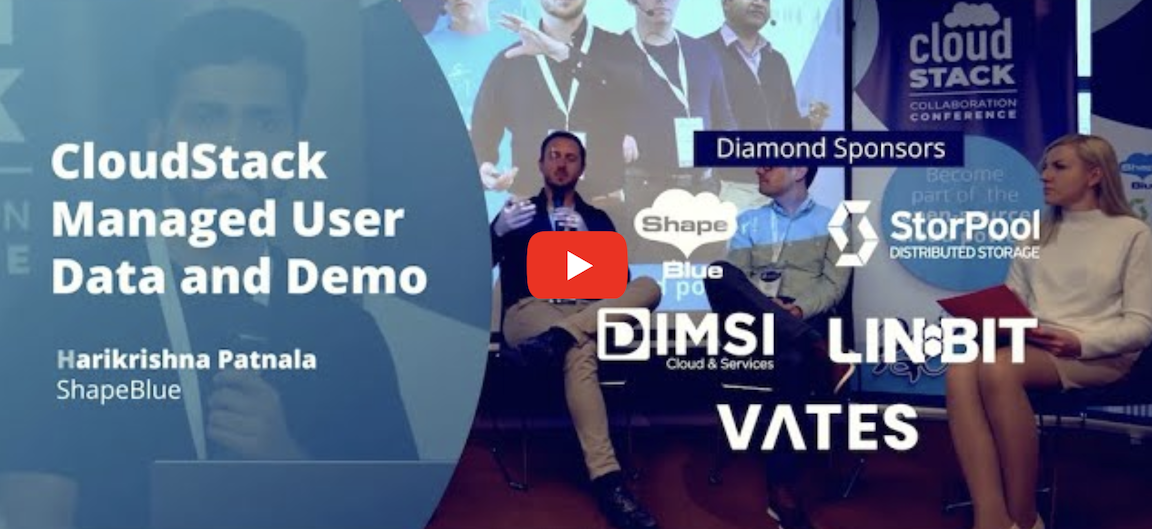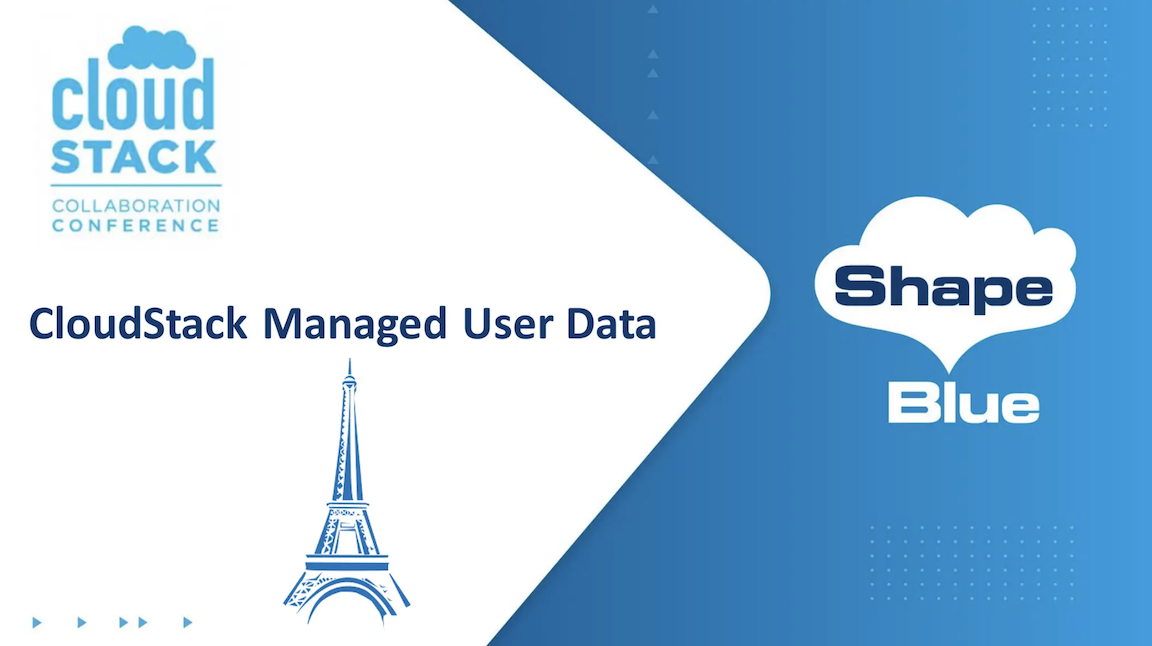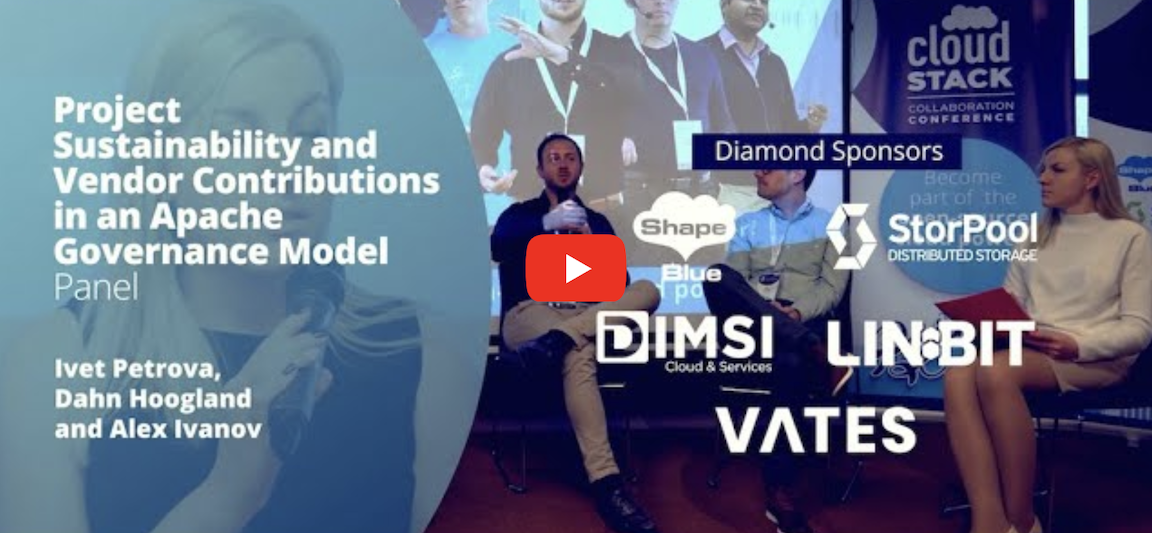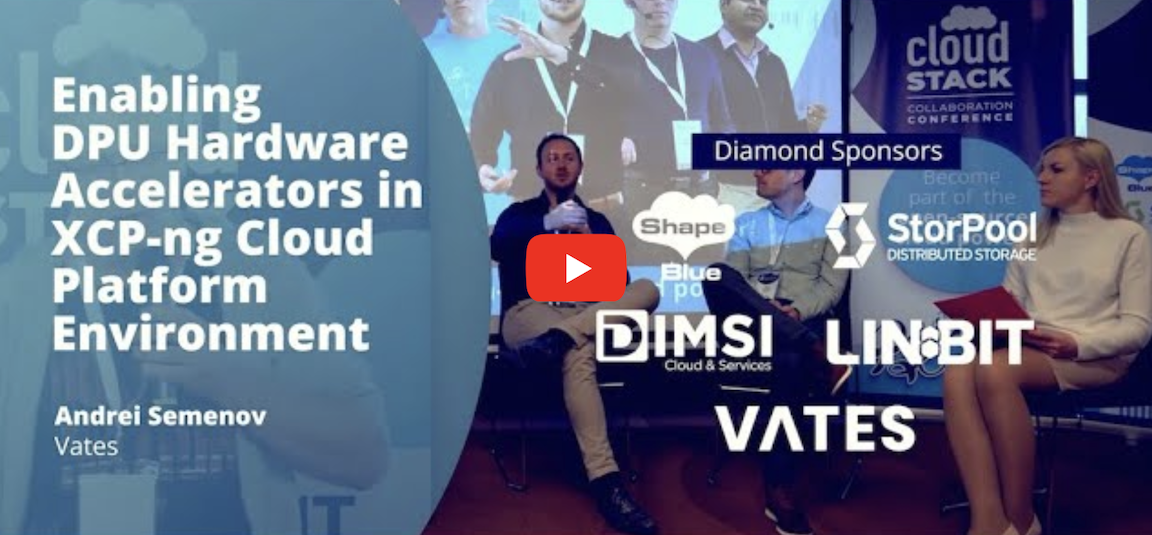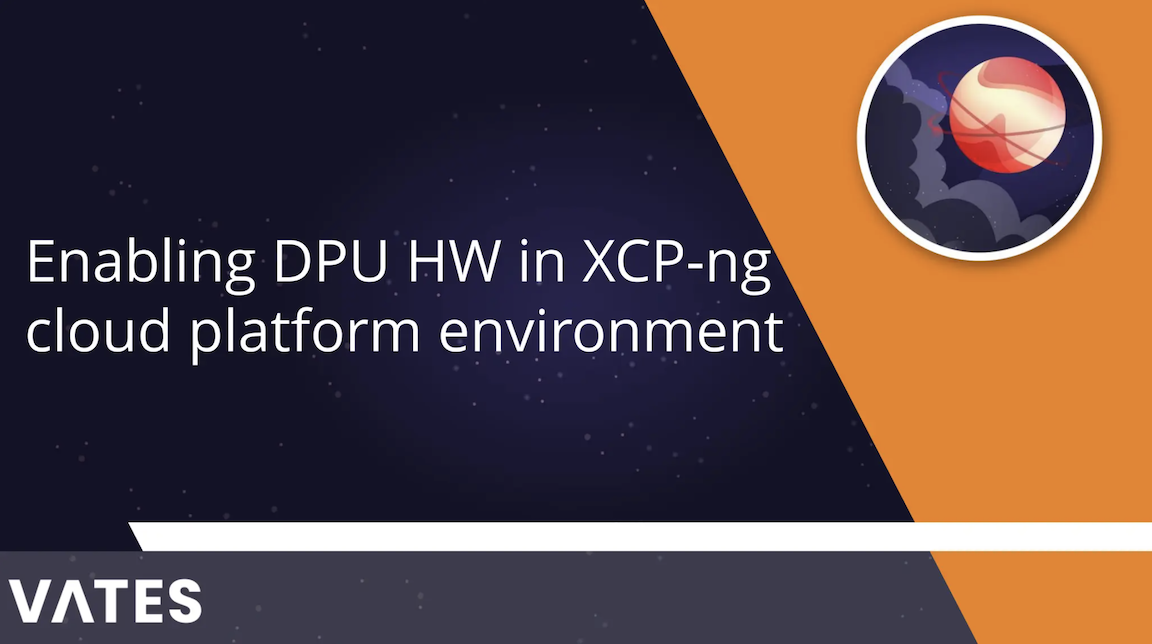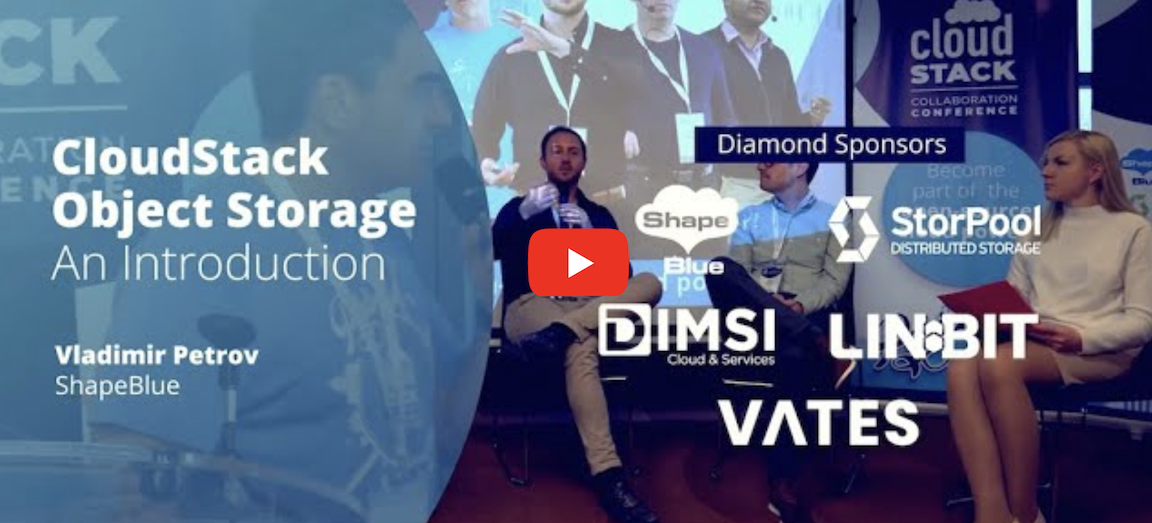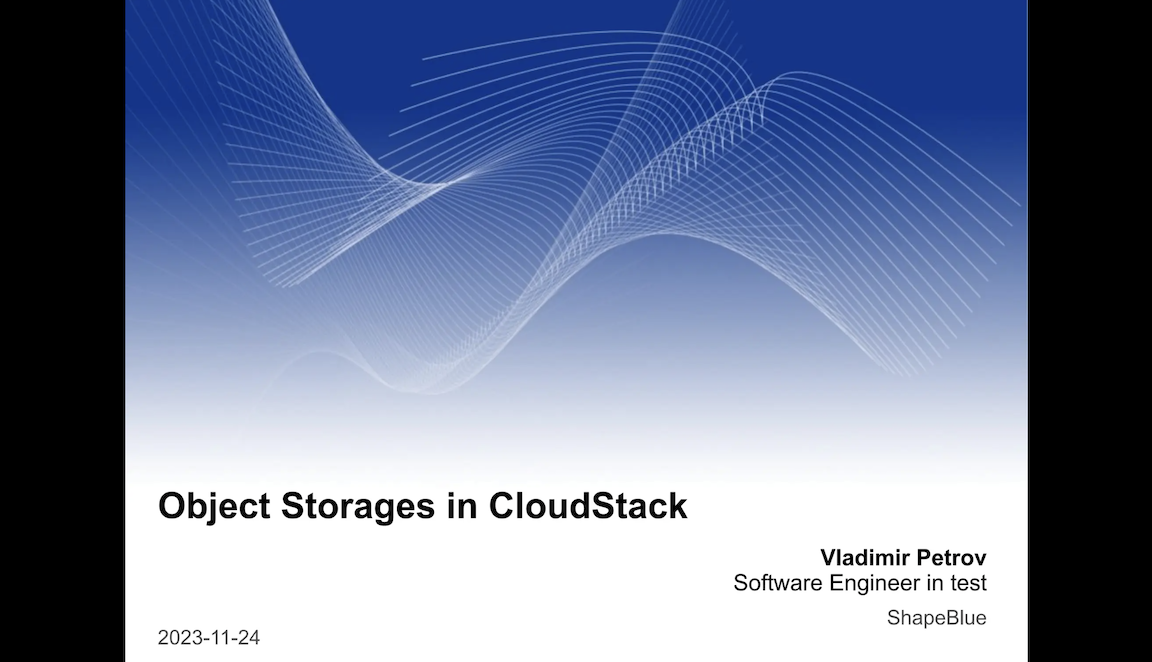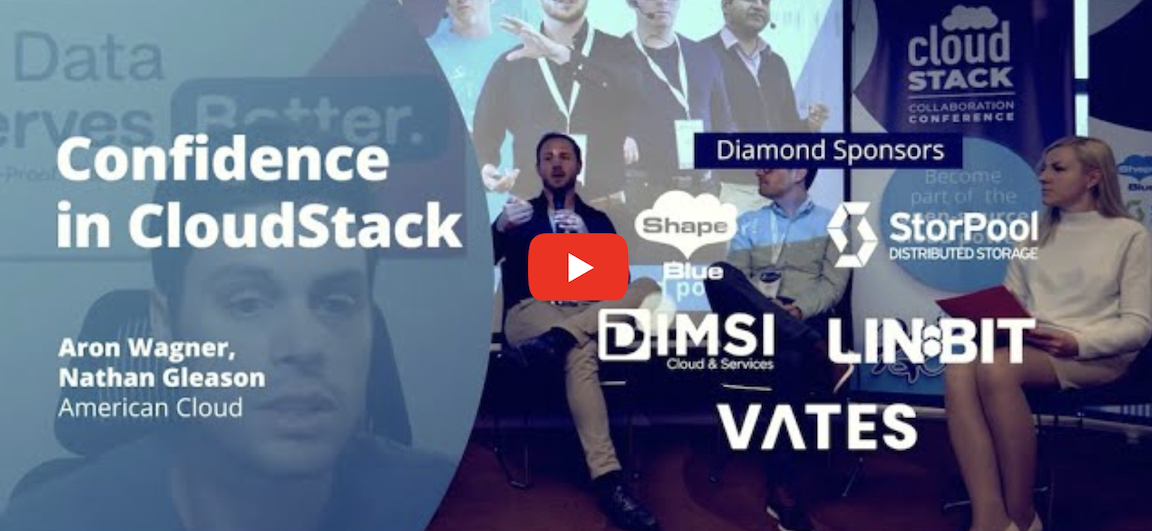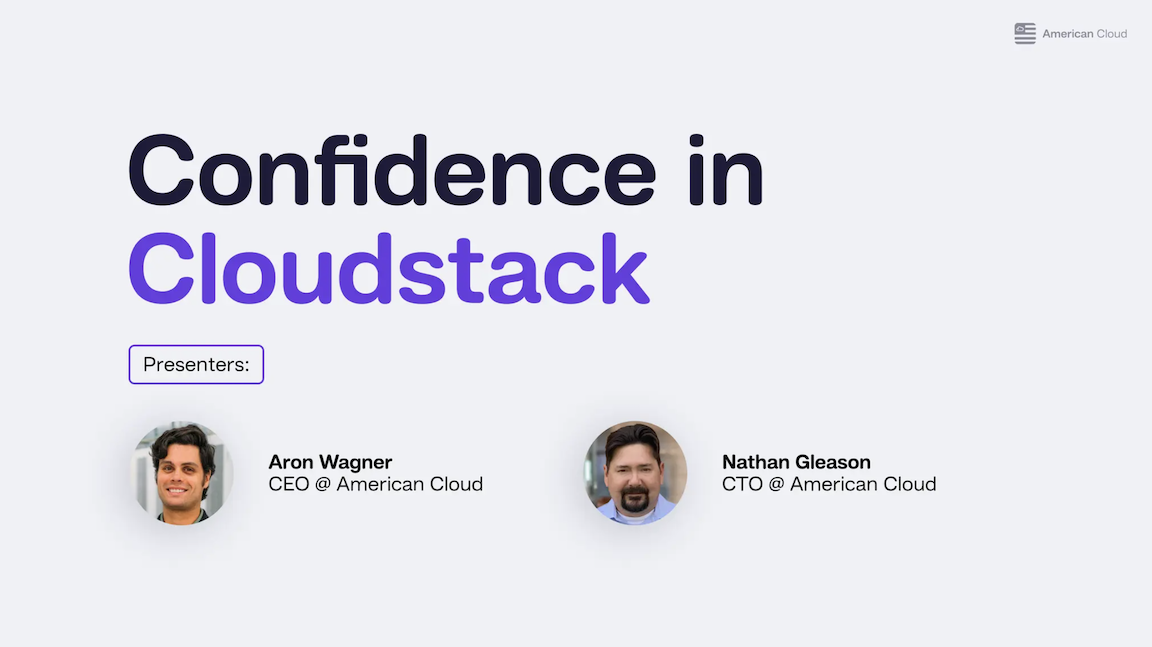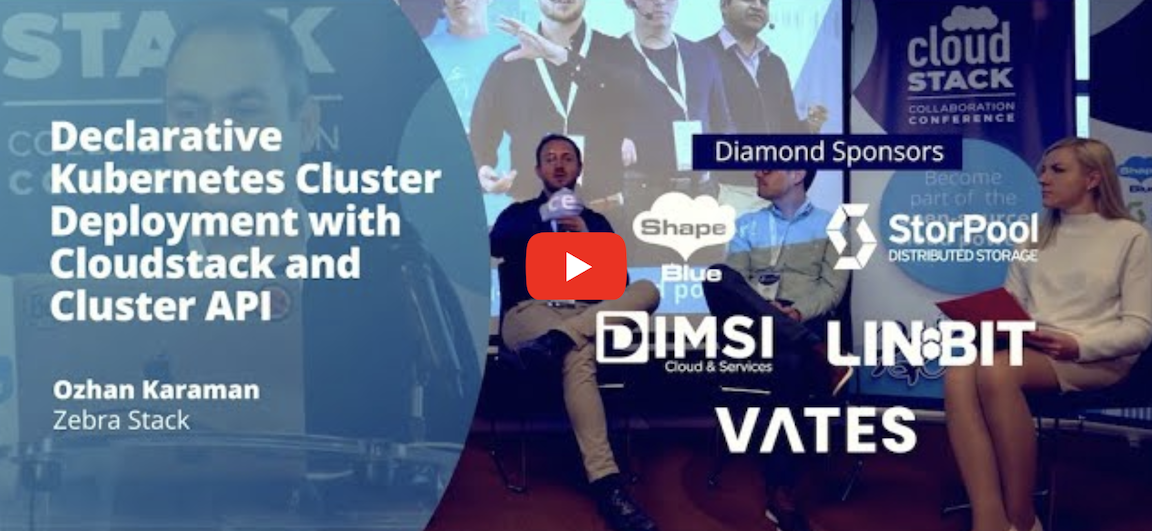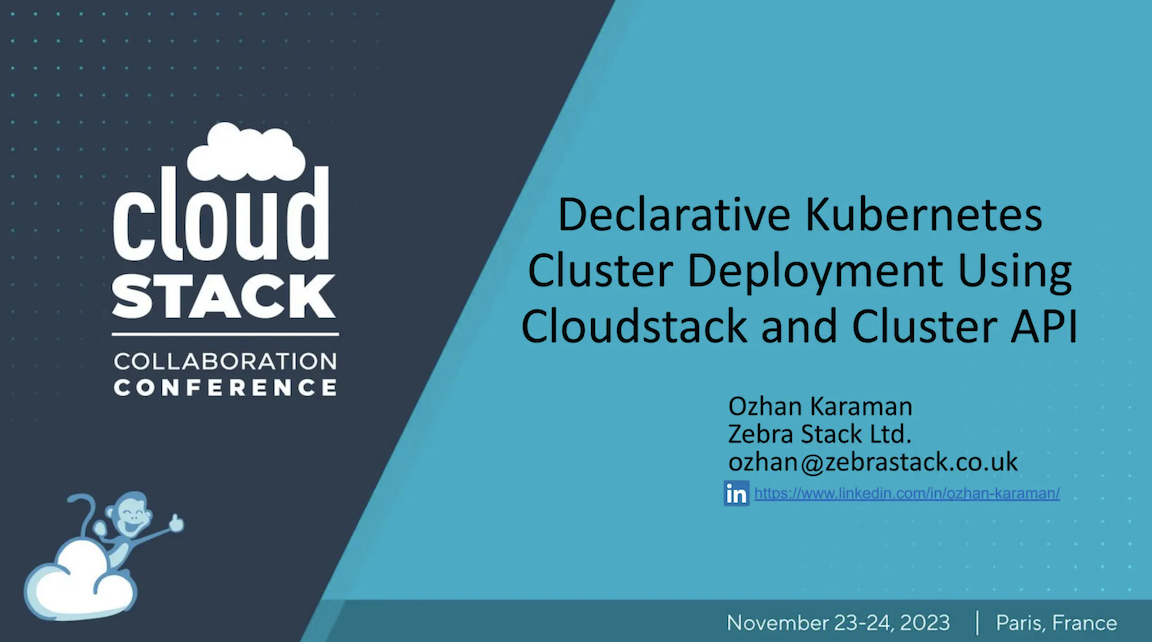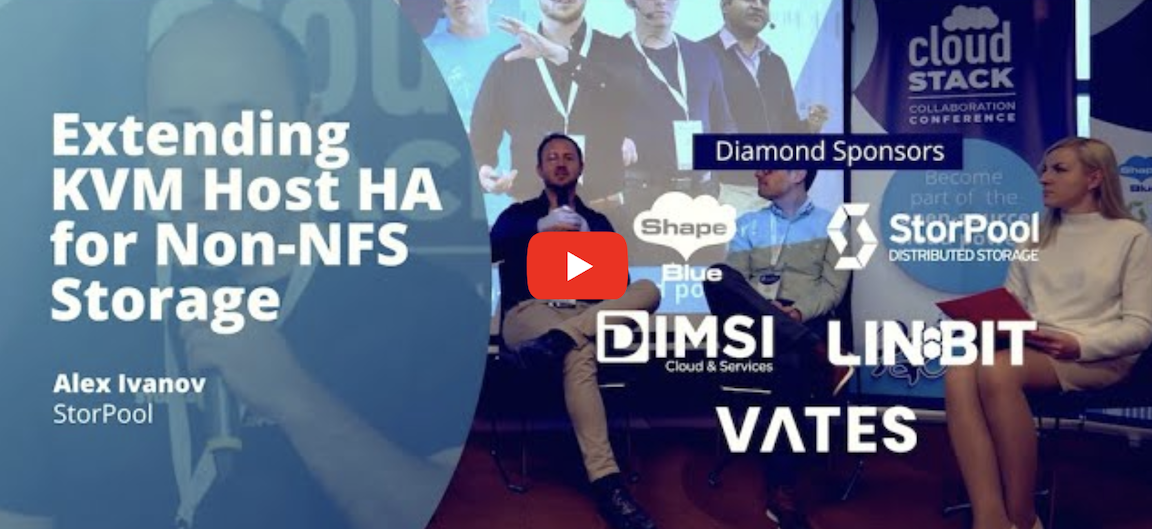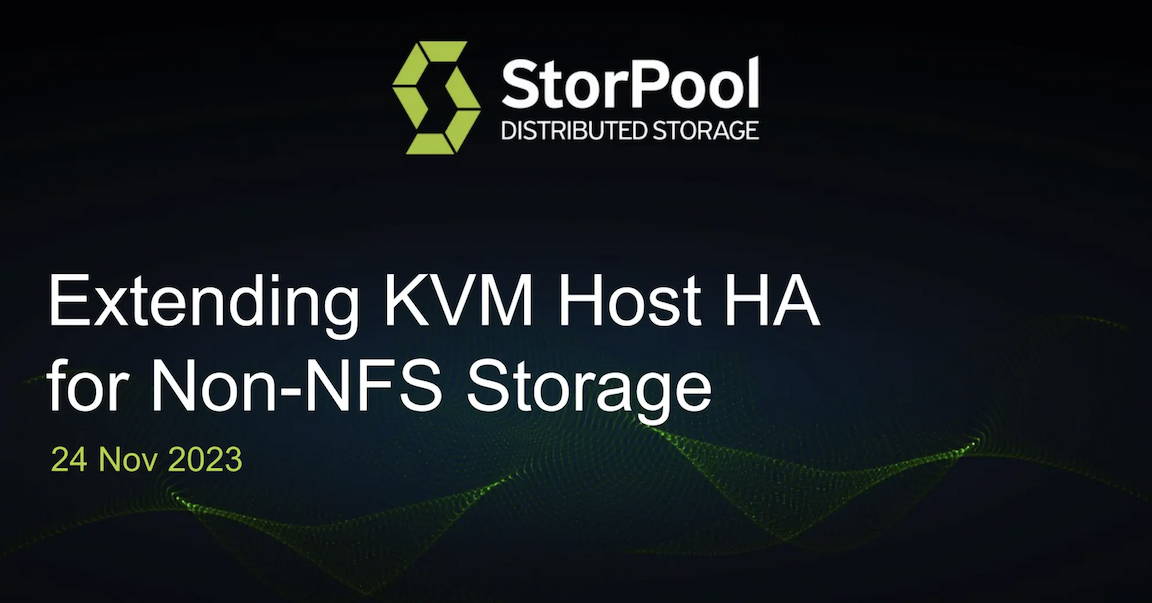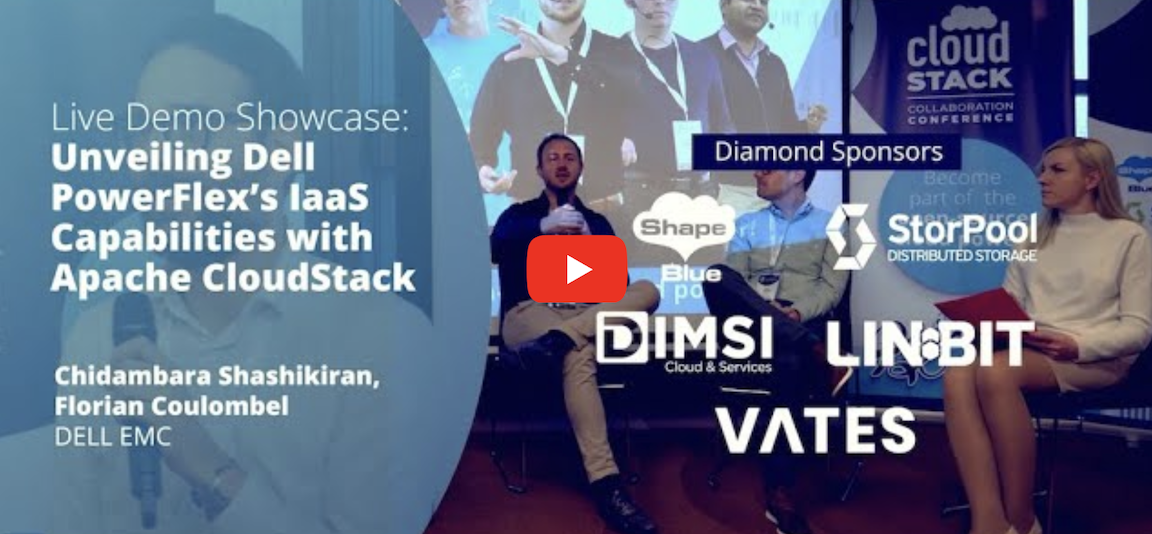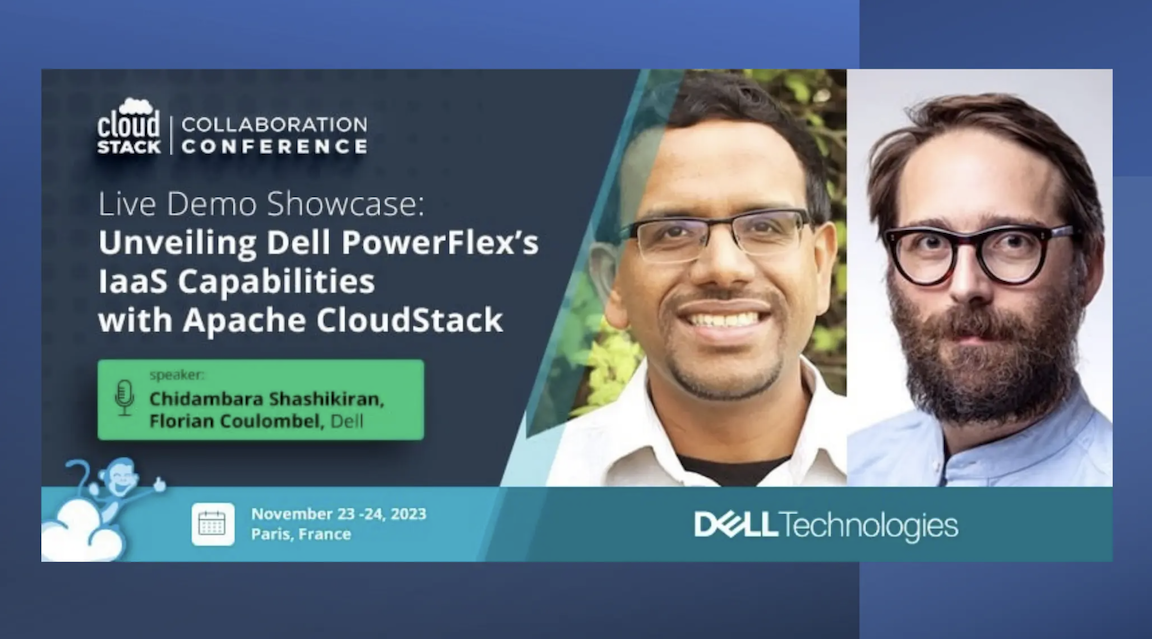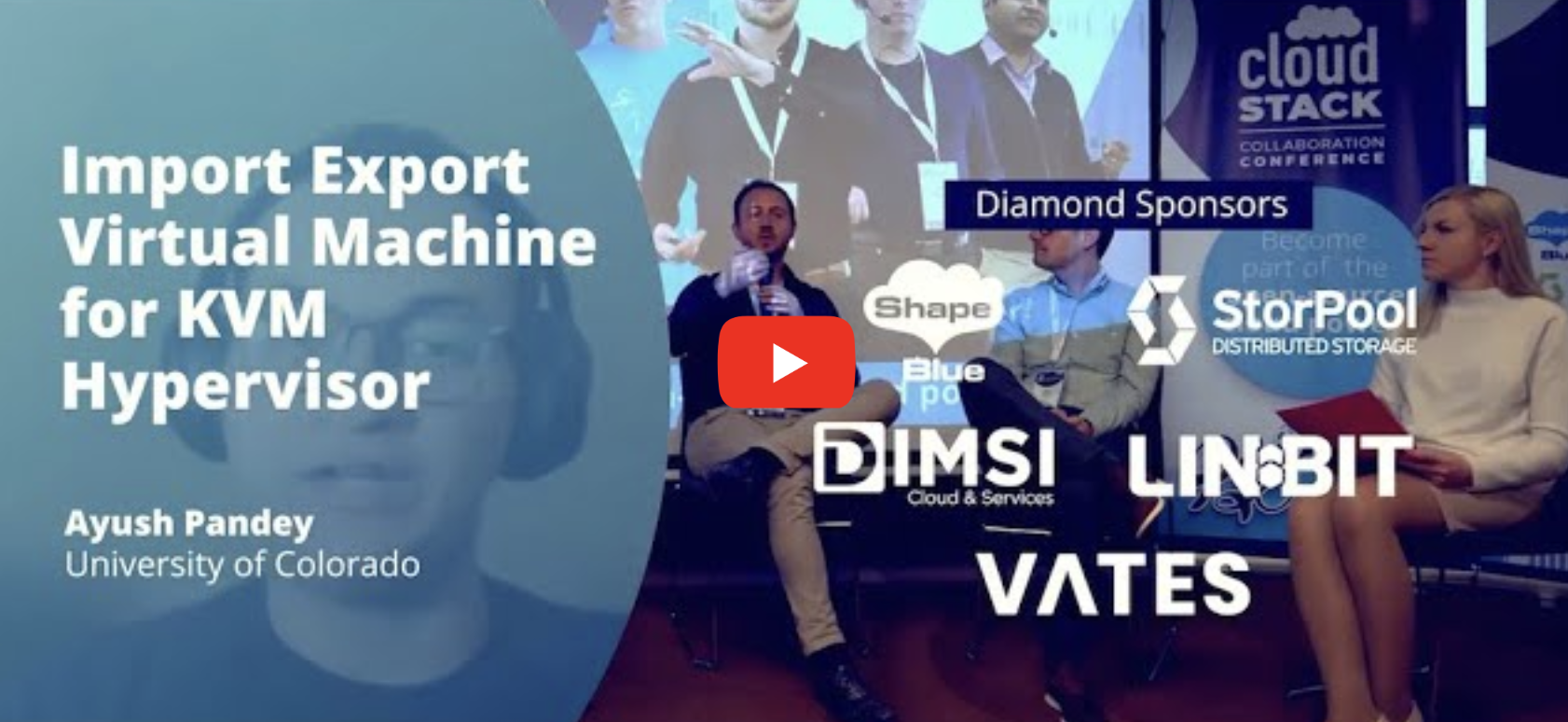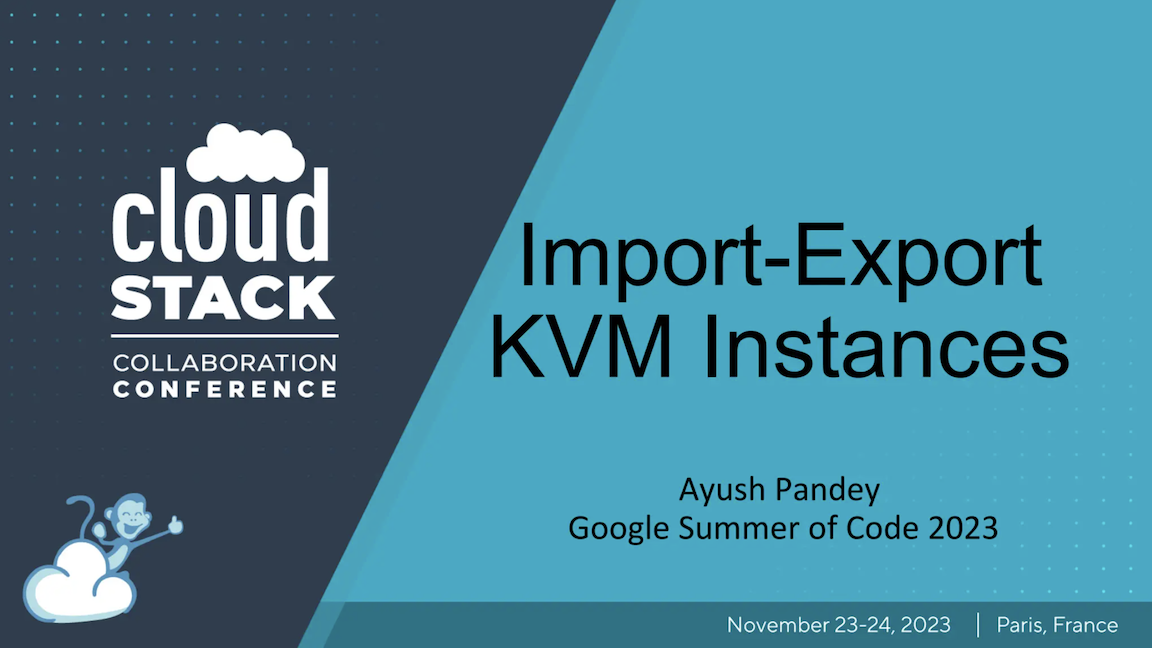The CloudStack Collaboration Conference 2023 took place on 23-24th November. The annual event is the largest get-together for the global Apache CloudStack community. The hybrid event is aimed at developers, operators and users to discuss and evolve the open-source software, its functionality and real-world operability. It introduces attendees to the CloudStack family, community leaders, project members and contributors.
The conference, arranged by a group of volunteers from the Apache CloudStack Community, took place in the voco hotel, in Porte de Clichy, Paris. It hosted over 350 attendees from 30+ countries, with 47 speakers holding sessions and workshops.
The Apache CloudStack community would like to express their gratitude to the sponsors of the conference, whose support made the event a reality – ShapeBlue, StorPool, LINBIT, DIMSI, Vates, mitteldeutsche IT, Leaseweb, proIO and Your.Online.
This blog provides a summary of the event, featuring the session slides and recordings.
View Photo GalleryDay 1 Sessions
State of the Union, Rohit Yadav
The Apache CloudStack project has had another exciting year – with growth in adoption, functionality and community size. In the project’s annual State of The Union talk, the current VP of the project, Rohit Yadav, reflects on the last year of the project’s collaboration, developments in CloudStack and community activity. He sets out how he sees the project developing over the next few years.
What’s New in CloudStack 4.19, Abhishek Kumar
This session gives a brief introduction of the new and exciting feature in the latest (upcoming) CloudStack LTS release, ie, 4.19.0. The discussion includes the details on the timeline of the CloudStack 4.19.0 release, overview of some of the marquee, new feature of the release – Object storage framework, KVM ingestion, Hypervisor agnostic simple DRS, CAPC aware CKS, OAuth2, DRaaS with Multi zone disaster recovery, etc and a summary of improvements added since the previous major LTS release of the CloudStack, ie, 4.18.0.
Keynote Talk: Open Source is Not Dead, Charles Schulz
Successful Open Source companies change their business models and then the open source license they were distributing their software on. More and more it feels like Open Source is just a marketing buzzword designed to lure customers to a particular solution. On the regulatory front, the EU is implementing the CRA and handling software as it were trucks manufacturing. Is there any hope left for Open Source? Has it failed in delivering its premise? Fear not. Open Source’s not dead. It has already won and it will prevail again.
Why and How CloudStack at weSystems, Stephan Bienek
Why? What? How? During the session, Stephan shares what made weSystems choose CloudStack as their main platform, which they base most of their managed services on. In addition, he talks about which services they provide based on CloudStack and how they integrated and use CloudStack today.
How We Use CloudStack to Provide Managed Hosting, Swen Brüseke
Swen shows how proIO utilize CloudStack to provide customers with managed hosting solutions and versatile public and private cloud solutions, mainly based on open-source software.
Panel Discussion: Apache CloudStack Question Time, Giles Sirett, Wido den Hollander, Stephan Bienek, Swen Brüseke
Panel group – taking a range of submitted questions from the audience (across any subject).
KVM Security Groups Under the Hood, Wido den Hollander
They are just a few clicks in the UI or a single API call, but how do security groups work at KVM hypervisor level? How do they filter traffic and what else do they do in addition to firewalling? What Anti-Spoofing policies are implemented by the security groups?
In this talk, Wido dives into the specifics of the security groups on the KVM hypervisor for both IPv4 and IPv6.
Elevating Privacy and Security in CloudStack, Boris Stoyanov
In an increasingly interconnected digital landscape, safeguarding data privacy and ensuring robust security measures are paramount. CloudStack offers a dynamic ecosystem for deploying and managing cloud resources. However, to fully harness its potential, it is crucial to address privacy and security concerns effectively.
This presentation explores the realm of possibilities and demonstrates how CloudStack can enhance the privacy and security of your cloud deployments. Boris examines practical approaches to protect sensitive data, fortify communications, and secure your infra against emerging threats. Join us on a journey to discover how CloudStack can be your trusted ally in the quest for a more secure and private cloud environment.
Migrating VMware Infra to KVM Using CloudStack, Nicolas Vazquez
In this session, Nicolas presents a new feature, targeted for CloudStack 4.19, which allows administrators to migrate Instances from a VMware environment (external or connected to CloudStack) and import them into a KVM CloudStack-managed environment.
Updates on the LINSTOR Driver for CloudStack, Rene Peinthor
About two Years ago, the LINSTOR driver for CloudStack was merged into the CloudStack code base, and it has received updates since then. Rene gives a quick overview of LINSTOR/DRBD and the driver, followed by more details on recently added features.
One is the ability to optionally store data snapshots on secondary storage, about making deep copies of templates vs using snapshots, about using LINSTOR/DRBD on XCP-ng hypervisors under Apache CloudStack, and (if finished by November) about VM-snapshots on LINSTOR/DRBD.
Zero to Cloud Hero: Crafting a Private Cloud from Scratch with XCP-ng, Xen Orchestra and CloudStack, Olivier Lambert
Dive into the seamless integration of the Vates stack as the foundation for your CloudStack deployment. In this workshop, you’ll witness the power and simplicity of XCP-ng and Xen Orchestra. From a blank slate to a fully operational private cloud, Olivier guides you through each pivotal step. Learn how to streamline your cloud setup process and unlock the potential of a private cloud infrastructure that’s both efficient and easy to manage. Watch to discover how to transform bare metal into a cloud powerhouse in mere minutes.
VNF Integration and Support in CloudStack, Wei Zhou
In this session, Wei presents how CloudStack 4.19 adds the capability to easily and quickly perform a light-touch integration of networking appliances with ACS, allowing for operators to offer a broader range of networking services while empowering end-users to effortlessly deploy their own virtualized network functions.
Developments to CloudStack’s SDN ecosystem: Integration with VMWare NSX 4, Pearl Dsilva, Alexandre Mattioli
In recent releases, Apache CloudStack has been evolving towards richer support for Software Defined Networking (SDN) solutions. In ACS 4.18, we introduced integration with Tungsten Fabric SDN, which opened ACS to several long-awaited features such as overlay networks, BGP, MPLS and other sophisticated networking capabilities. We now are working towards integrating VMWare NSX 4 with CloudStack, which will enable agile software-defined infrastructure for building cloud-native micro-segmented application environments on VMWare using CloudStack.
In this talk, Pearl and Alex delve into the expansion of ACS’s SDN ecosystem with the integration of VMWare NSX 4, thus enabling operators to make informed decisions regarding the right SDN platform for their CloudStack deployment. They also look into what it takes to create a new network provider in CloudStack.
Backroll, News and Demo, Pierre Charton, Matthias Dhellin, Ousmane Diarra
Pierre, Matthias, and Ousmane demonstrate the new Backroll version, with a new and easy installation process. They also give a demo of the new features of the project and its integration with CloudStack, providing an all-in-one solution.
Backup and Disaster Recovery with CloudStack and StorPool – Workshop, Venko Moyankov
One of the main shortcomings of CloudStack compared to VMware is the lack of built-in support for disaster recovery. In this workshop, Venko shows how you can build a cloud using Apache CloudStack and StorPool storage that features disaster recovery capabilities and off-site backups. He shows a reference architecture of the solution, followed by a live demo on how to set backup policies, backup virtual machines and recover the VMs in a site-down event.
The workshop allows an open discussion about the practical aspects of implementing a DR service, the difficulties of building such solutions and how to address them.
Mitigating Common CloudStack Instance Deployment Failures, Jithin Raju
A discussion on the common failures when using CloudStack taking instance deployment as an example. The session includes 15 specific failure scenarios, their causes, and possible mitigation steps.
Day 2 Sessions
How to Re-use Old Hardware with CloudStack. Saving Money and the Environment, Wido den Hollander
CloudStack allows you to use older hardware for a longer time in your cloud environment. By using older hardware for a longer time you can save money and the environment by not producing new hardware.
Hypervisor Agnostic DRS in CloudStack - Brief overview & demo, Vishesh Jindal
Vishesh has been working on the feature hypervisor-agnostic DRS in CloudStack. He briefly overviews the implementation and discusses the algorithms currently available and how they can improve resource allocation and workload balancing in virtualized environments. Additionally, Vishesh showcases a live demo of hypervisor agnostic DRS in action, highlighting its capabilities and effectiveness.
Building a Software Makerspace with CloudStack to Drive Innovation by Improving Learning and Research Abilities at Universities, Jonas Willén, Pierre Le Fèvre, Emil Karlsson
A makerspace today is focused on turning ideas into physical prototypes by providing resources in terms of tools and infrastructure. In a university, a makerspace provides students with an opportunity to build a portfolio. Students experiment through an entire development life cycle by creating prototypes for each stage of a cycle. It has been shown to be a productive method for learning.
To the best of our knowledge, software development is yet to be included in the makerspace concept. In the case of our software makerspace, it is following the same principles as a traditional makerspace for device and mechanical prototyping, but instead provides software development tools. One such indispensable tool is cloud-based infrastructure. A cloud facilitates rapid prototyping of machine learning tools, microservices, IoT data mining, etc.
This talk presents their approach to extend the concept of a makerspace to software development using a student developed private cloud. They present the method they used to gather requirements from various researchers and students. They also present the final design and the current implementation of the cloud using Apache CloudStack. Finally, they discuss how other universities could implement their own software makerspace and its benefits.
DRBD Deep Dive, Philipp Reisner
LINSTOR/DRBD became a primary storage option for Apache CloudStack nearly two years ago. In this session, Philipp shares insights about the internals of DRBD, the data-path part of the data-storage solution.
Knowing about DRBD’s meta-data, the activity log, and the bitmap will enable you to make more educated decisions when it comes to selecting the right hardware for your next ApacheCloudStack+LINSTOR+DRBD deployment. When your servers have different storage tiers, what are the advantages and trade-offs regarding putting data and meta-data on different tiers?
Recently, DRBD got a new transport, load-balancing TCP, that joins the existing TCP transport, and the RDMA transport received important updates. Looking beyond DRBD, what is important to know when selecting the RAID level and data alignment? Philipp concludes the session with comments regarding LVM compared to ZFS.
Setting Up Your First CloudStack Environment with Beginners Challenges, MD Rasel
Are you eager to embark on your journey into the world of cloud computing with Apache CloudStack but don’t know where to start? This informative session is designed especially for beginners. MD Rasel guides you through the essential steps of setting up your very first CloudStack environment, from initial installation to basic configuration.
This session aims to equip newcomers to Apache CloudStack with the fundamental knowledge and practical skills required to establish their own cloud infrastructure. MR Rasel addresses common challenges that beginners often encounter during the setup process and provide valuable insights on how to overcome them.
The session consists of a combination of presentations and live demonstrations. Attendees had the opportunity to follow along with the setup process in real time and ask questions.
Transitioning from VMware vCloud to Apache CloudStack: A Path to Profitability and Competitiveness, Marco Sinhoreli
In this session, Marco explores the potential of migrating from VMware vCloud to Apache CloudStack with KVM. VMware vCloud Suite is a robust cloud infrastructure and management solution that combines vSphere and vRealize Suite, providing automation and operations capabilities for traditional and modern infrastructure and apps. However, the transition to Apache CloudStack can offer enhanced profitability and competitiveness.
Marco delves into the benefits of Apache CloudStack, including its cost-effectiveness and open-source nature, and discusses how a gradual migration from VMware vCloud can reduce ownership costs, increase profitability, and enhance competitiveness. He also covers the practical steps and considerations in planning and executing this transition effectively.
CloudStack and GitOps at Enterprise Scale, Alex Dometrius, Rene Glover
The AT&T team recently embarked on a journey with CloudStack and has since deployed a solution which encompasses multiple data-centers. This talk focuses on how they are using open source tools like CloudStack, FreeIPA, and Metal as a Service (MaaS) to support KVM-based VM provisioning at an enterprise scale within a GitOps model.
2FA and OAuth2 in CloudStack, Andrija Panić
This talk is about authentication and authorization – Two-Factor Authentication (2FA) and OAuth2 explaining their critical roles in enhancing security and user experience within the realm of Apache CloudStack.
With Two-Factor Authentication (2FA), we strengthen the authentication process, mitigate password-related or usual login vulnerabilities, and ensure compliance with security standards. On the other side of the authentication spectrum, OAuth2, the industry-standard authorization framework, simplifies the process of granting access to resources. Andrija discusses how this can be used and how it fits in CloudStack.
Centralized Logging Feature in CloudStack using ELK and Grafana, Kiran Chavala
In this session, Kiran demonstrates how to centralize all the CloudStack-related logs in one place using Elasticsearch and generate beautiful dashboards in Grafana. This session simplifies the troubleshooting process involved with CloudStack and quickly helps to resolve the issue.
DRaaS using Snapshot copy and destination selection (DRaaS), Alexandre Mattioli
Apache CloudStack 4.19 introduces the capability for end-users to copy their root disk or volume snapshots to one (or more) ACS Zones without operator intervention. In this talk, Alex shows how this simple yet powerful new feature enables for end-users to control where their data resides and for operators to provide low-cost and robust DRaaS to their customers.
Use Existing Assets to Build a Powerful In-house Cloud Solution, Magali Pervan, Joffrey Luangsaysana, Grégoire Lamodière
How to minimize the impact when it’s time to implement a cloud solution for automating internal workloads and delivering efficient solutions? Magali, Joffrey, and Grégoire present a case study of a successful hardware reuse project, including key metrics: Business objectives, Performance objectives and Financial objectives.
CloudStack Managed User Data and Demo, Harikrishna Patnala
We know existing Userdata support in CloudStack enables users to inject custom scripts or data into virtual machines during provisioning, facilitating automation and customization of VM setup and configuration. This talk is about delivering the extended support of userdata with “Managed UserData” which enables users to register and manage their own UserData script(s) as a CloudStack resource - followed by a demo.
Project Sustainability and Vendor Contributions in an Apache Governance Model – Panel, Ivet Petrova, Daan Hoogland and Alex Ivanov
This Panel discusses the Apache CloudStack project sustainability and vendor contributions in an Apache Governance Model. The participants present the different points of view from the development perspective, vendor contributions and PMCs. Panellists share their perspectives on how to help the project grow, increase its visibility and ensure its longevity and healthy development.
Enabling DPU Hardware Accelerators in XCP-ng Cloud Platform Environment, Andrei Semenov
In cloud computing environments, VMs require fast access to resources like storage and networking. The hardware that the VMs access is implemented in software and/or by passing through a dedicated hardware device. Software-based solutions consume extra CPU cycles, thus resulting in poor performance. Also, these require to expose a device-model to the guest, thus increasing the attack surface. Conversely, hardware passthrough provides better performance and security but can be expensive in terms of the number of physical resources, since each device is dedicated to a single VM. This talk focuses on how Vates is working on sharing hardware resources among VMs by relying on dedicated processors named Data Processing Units (DPU). More precisely, Vates work on offloading Xen hypervisor of storage emulation by relying on Kalray K200 DPU PCIe controllers, a hardware accelerator based on MPPA architecture.
CloudStack Object Storage - An Introduction, Vladimir Petrov
CloudStack 4.19 introduces a new framework for object storage. In this talk, Vladi explains what has driven this development, the architecture chosen and current integration points with Object store providers.
Confidence in CloudStack, Aron Wagner, Nathan Gleason
In an ever-growing landscape of thousands of virtualization and cloud native projects it can be hard to understand what projects reliably just work. Fortunately for the growing community at CloudStack that is precisely what we (American Cloud) found.
Declarative Kubernetes Cluster Deployment with CloudStack and Cluster API, Ozhan Karaman
Are you currently managing Kubernetes clusters in the cloud and considering a transition to on-premises infrastructure using CloudStack? This session is an exciting demonstration of how you can deploy Kubernetes clusters in a declarative manner, leveraging the capabilities of CloudStack and Cluster API. In this demo, Ozhan showcases a comprehensive solution that combines Packer, Gitlab CI, ArgoCD, Cluster API, and Cluster Autoscaler to create a seamless on-premises deployment strategy adaptable to diverse requirements over CloudStack Infrastructure.
Extending KVM Host HA for Non-NFS Storage, Alex Ivanov
The current KVM Host HA feature depends on the existence of an NFS primary storage to detect which nodes are online, even if other types of primary storage are used. StorPool extends the HA feature to allow other methods to be used for this. The new implementation adds support for using StorPool Storage for HA heartbeats, removing the need for NFS primary storage. The solution developed by StorPool allows new storage vendors and protocols to be added easily.
Live Demo Showcase: Unveiling Dell PowerFlex’s IaaS Capabilities with Apache CloudStack, Florian Coulombel
Dell PowerFlex is the latest storage platform to offer advanced integration with Apache CloudStack. Powerflex, a software-defined platform, has built a reputation for performance, agility, and scalability and is already being used in a number of large-scale CloudStack IaaS environments.
Watch the session to see the live demo of the integration and automation capabilities.
Some of the key features showcased are: Infrastructure Provisioning and Configuration, VM operations & lifecycle management and Infrastructure Management & Monitoring.
Import Export Virtual Machine for KVM Hypervisor, Ayush Pandey
Ayush talks about his contribution as a GSoC Contributor, for implementing the Import-Export Instances feature for the KVM Hypervisor.

